The turquoise sea and the white beaches were one of the main reasons why we’ve returned to Lefkada after our first visit 15 years ago. The island is still as gorgeous as it was when we visited in 2015, even after it survived a powerful earthquake. In my previous post, I wrote about the beaches of the western part of the island, and today I’m going to tell you more about the inner part of the island and some locations on the northern and southern parts.
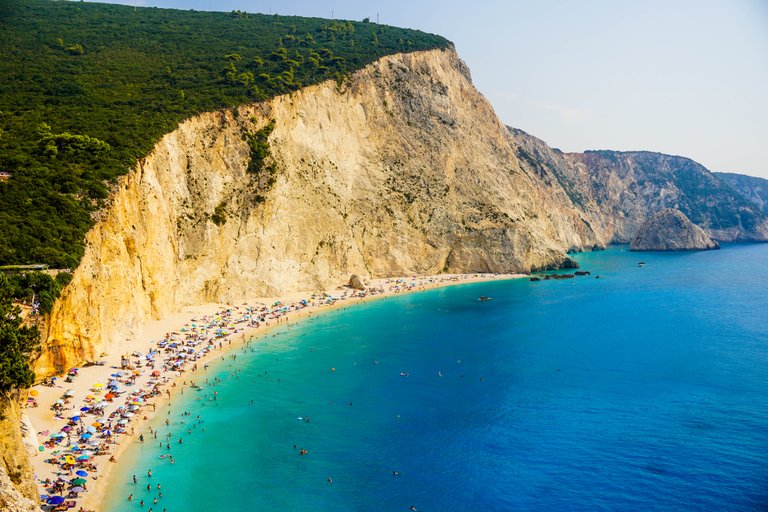
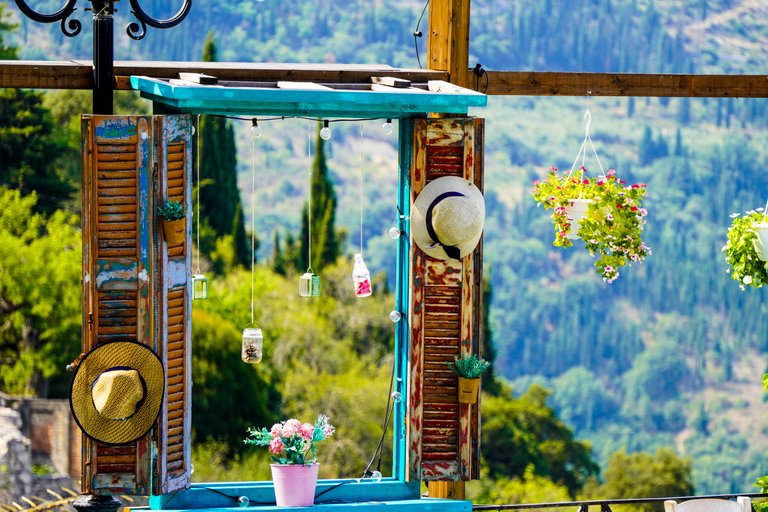
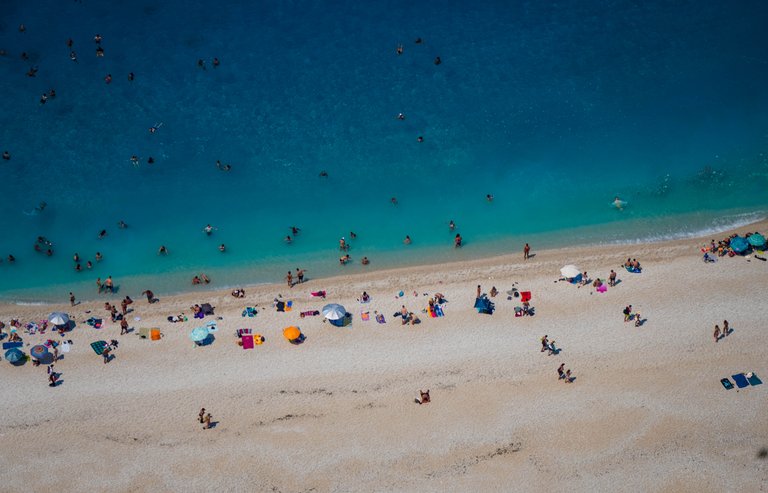
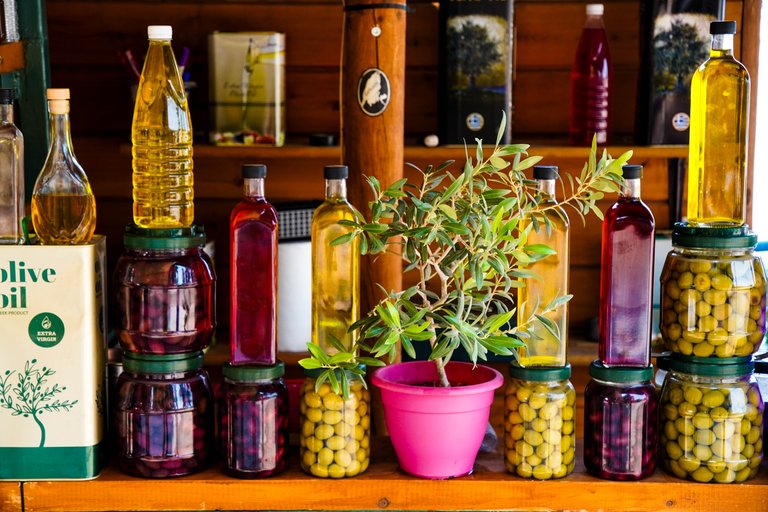
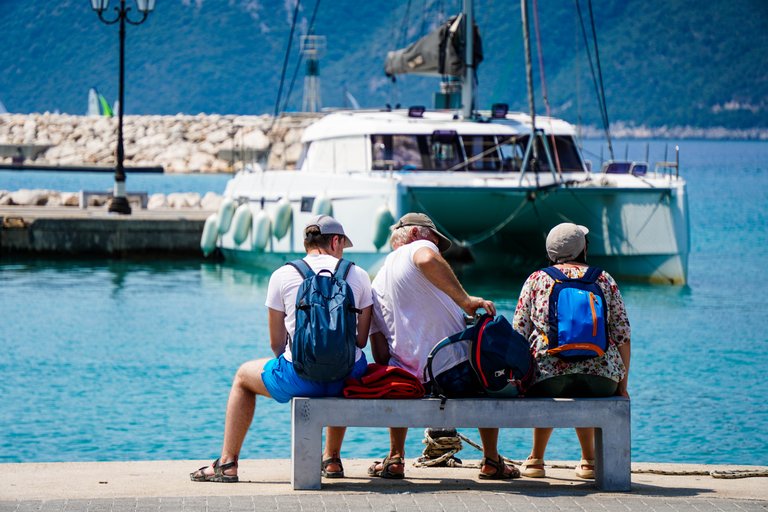
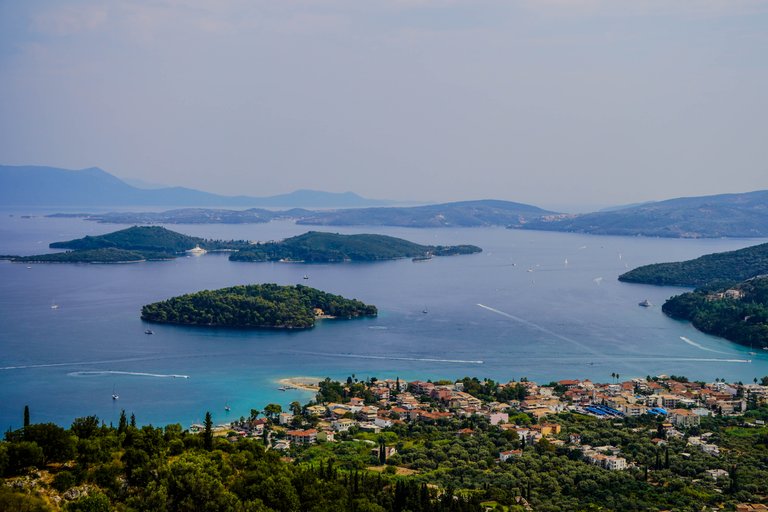
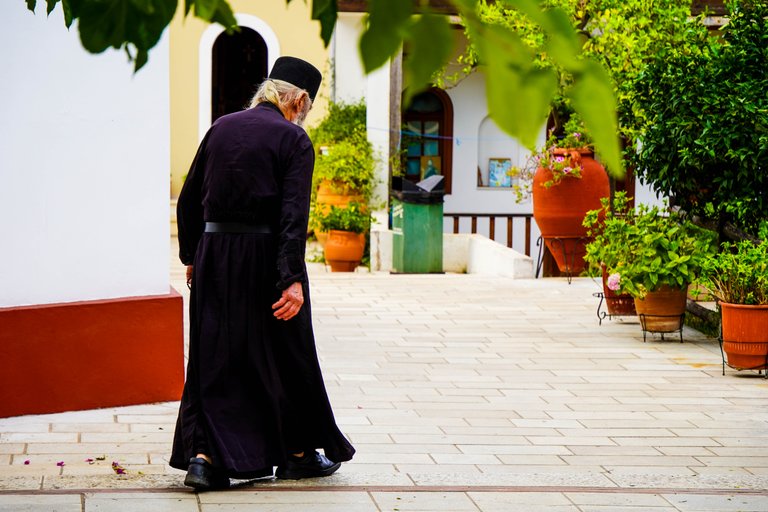
My friend recommended the stop at the FlyMe Bar in the village of Exanthia. It is a nice bar and club that has a beautiful position with great views. I can imagine that in the evenings, with music, it is a nice club, and while we visited in the morning, it was a really nice place for a coffee stop.
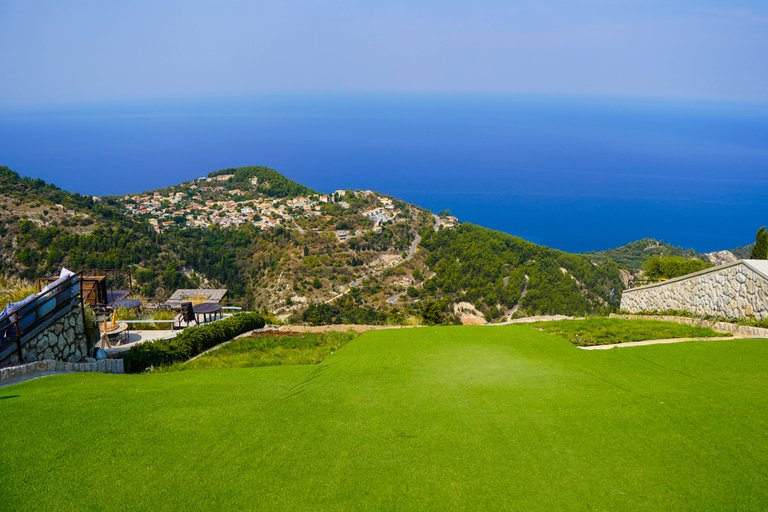
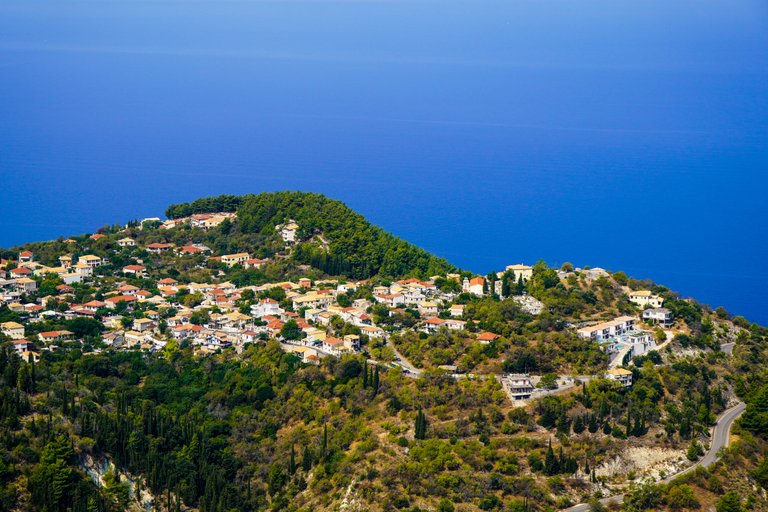
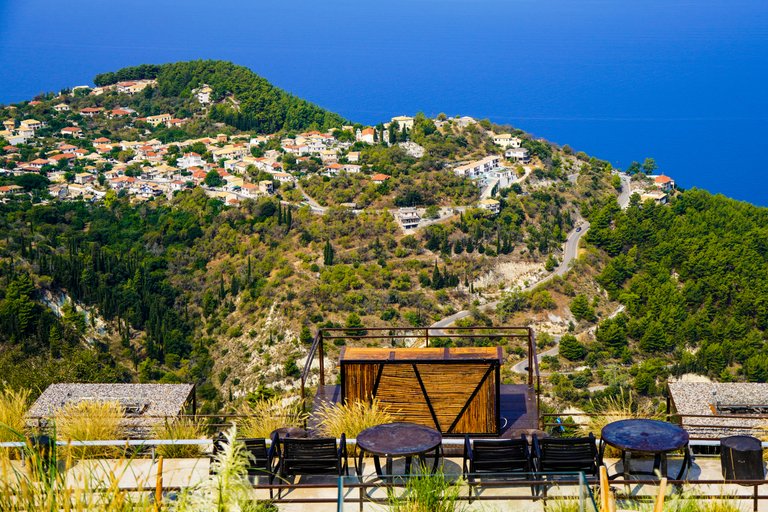
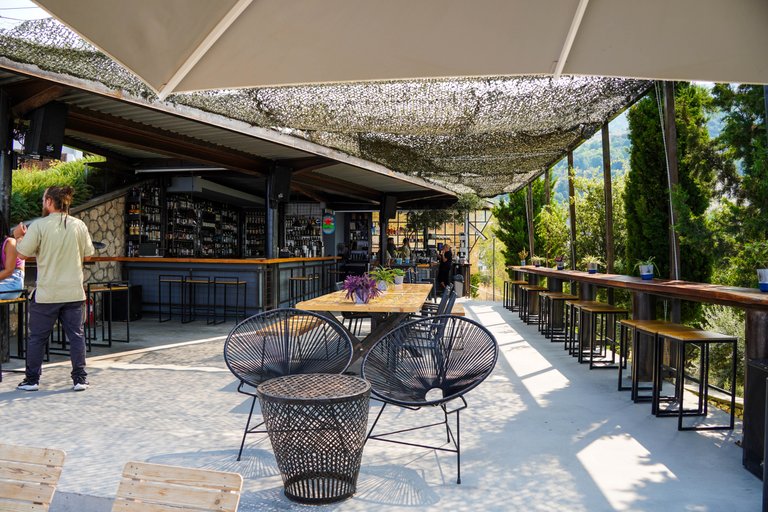 | 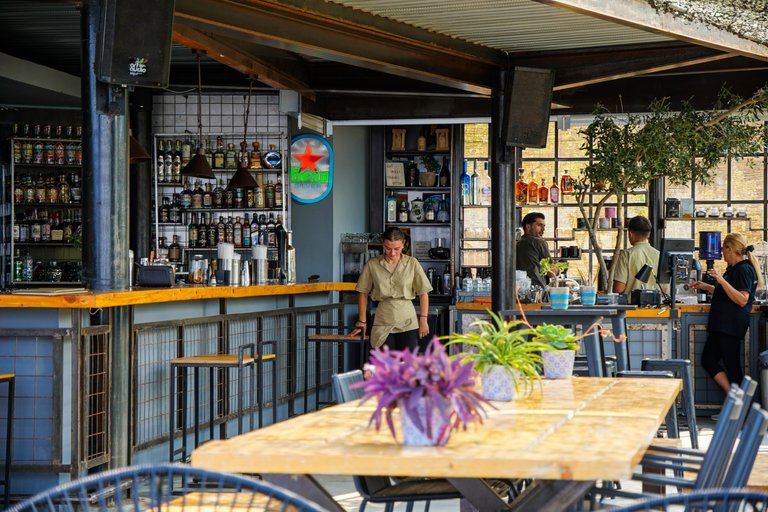 |
|---|
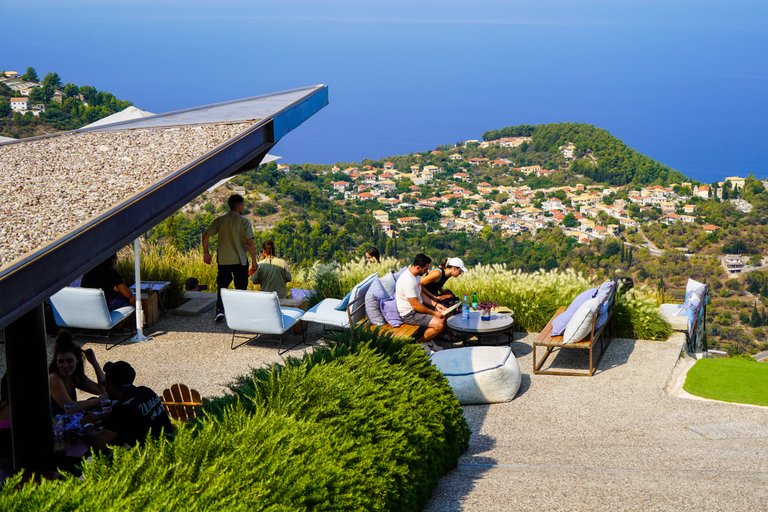
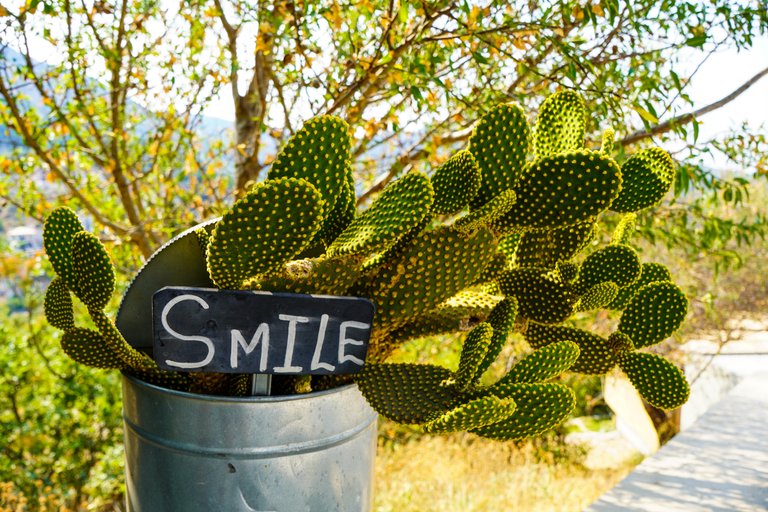
We also took a walk around the village and were impressed to see how the locals use different objects to decorate the surroundings of their homes. It's really lovely and attractive.
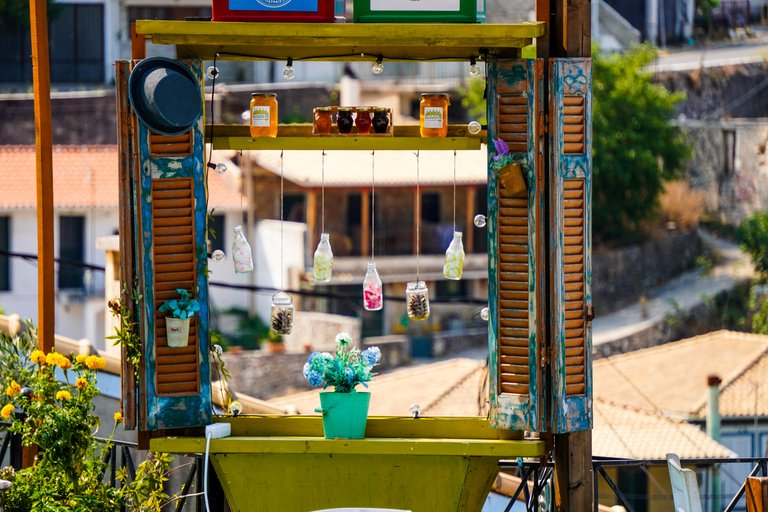
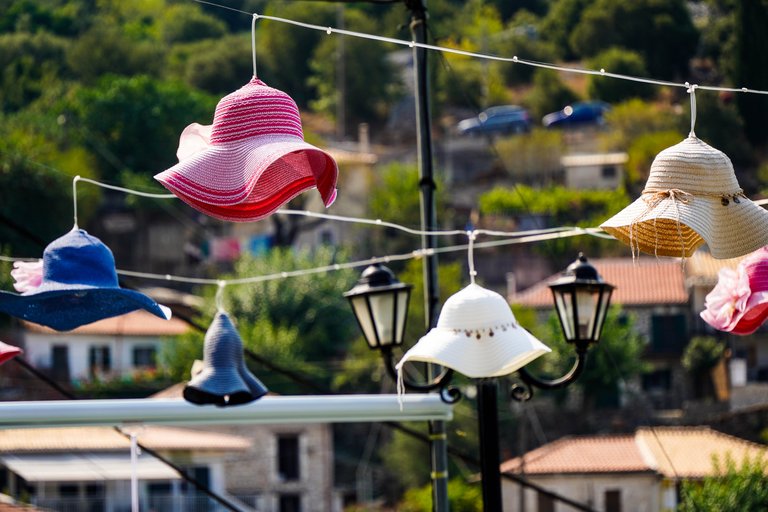
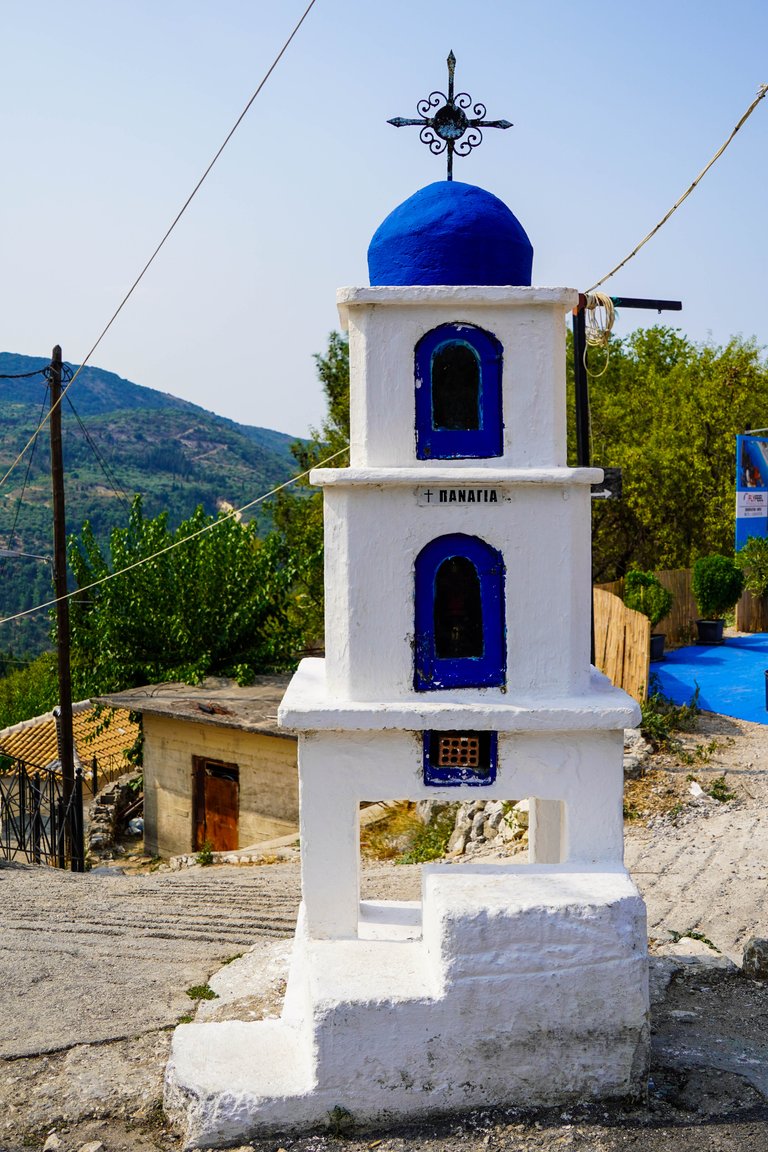
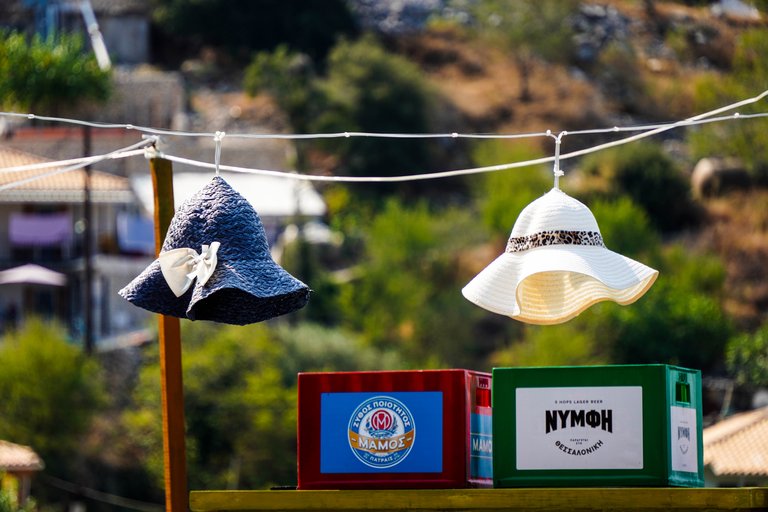
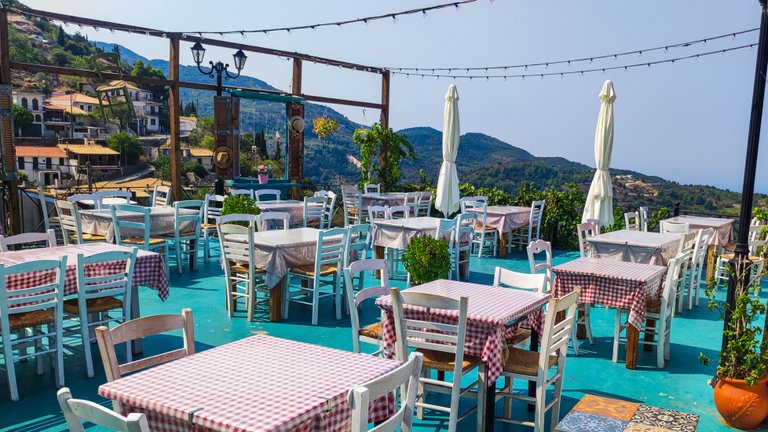
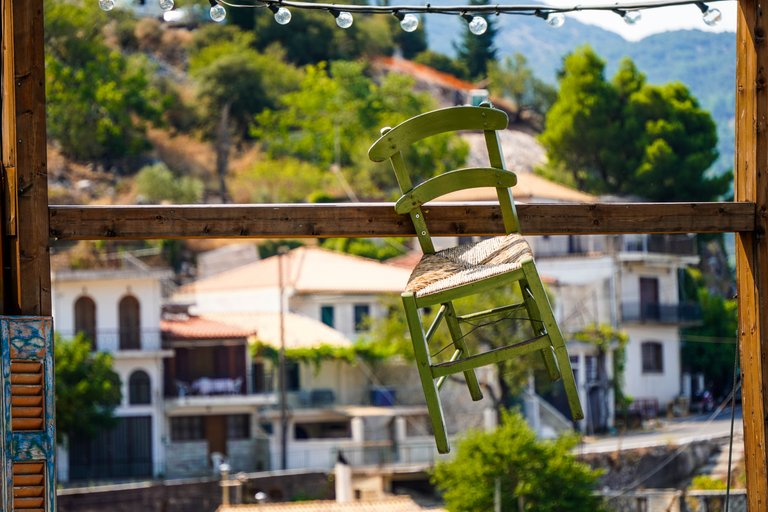
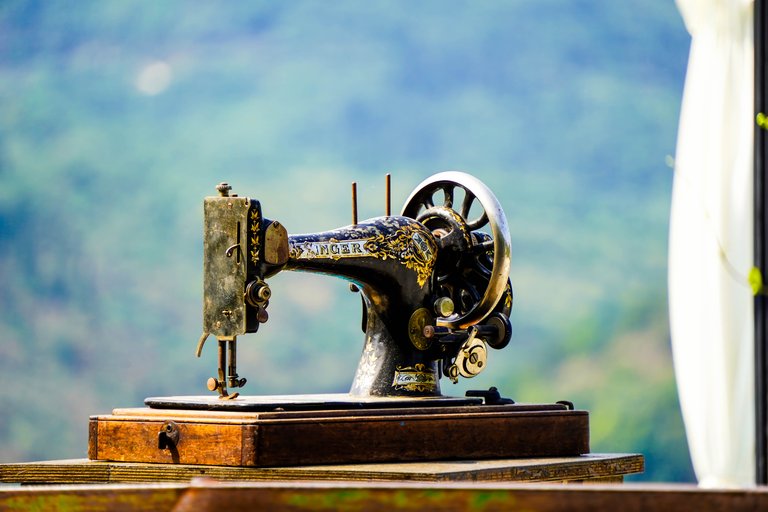
We also visited the town of Karya, a calm mountain village that is known for lacemaking and embroidery. We were expecting much more, but in fact there are only a few shops offering the textile products.
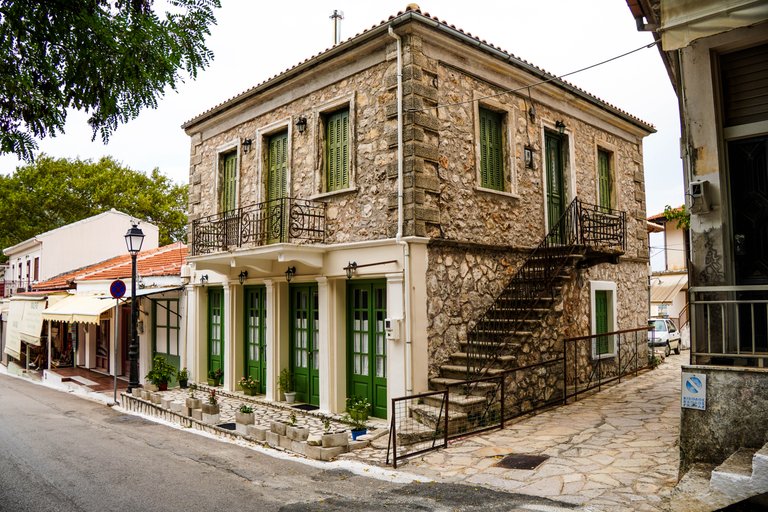
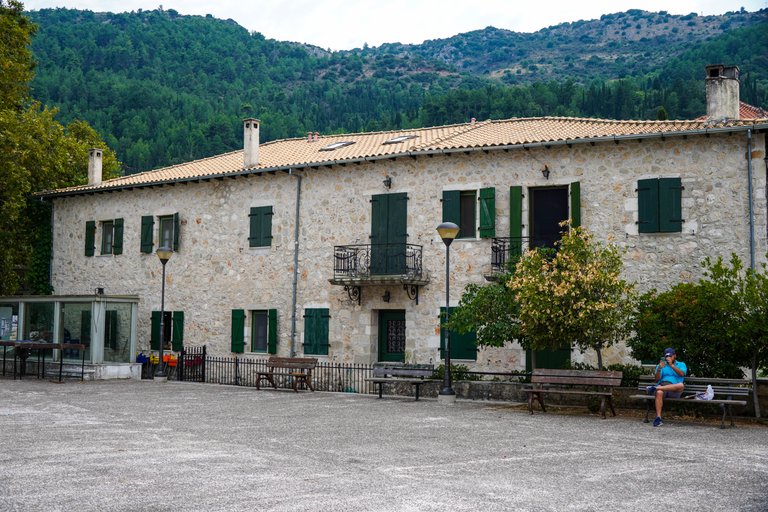
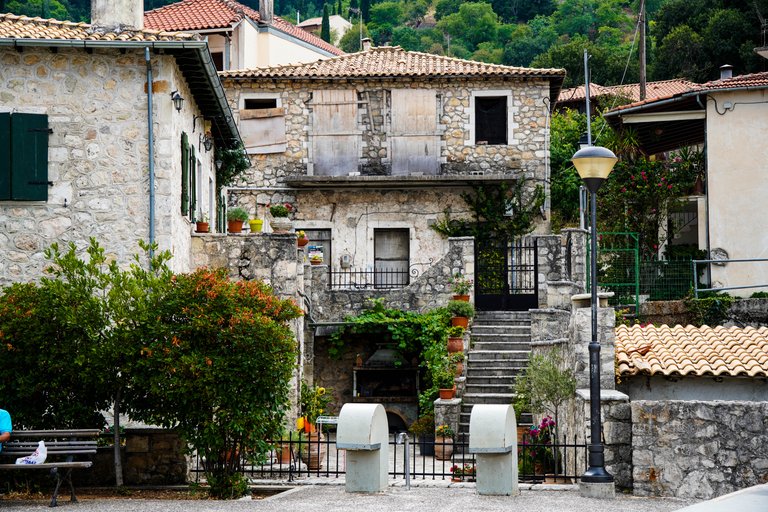
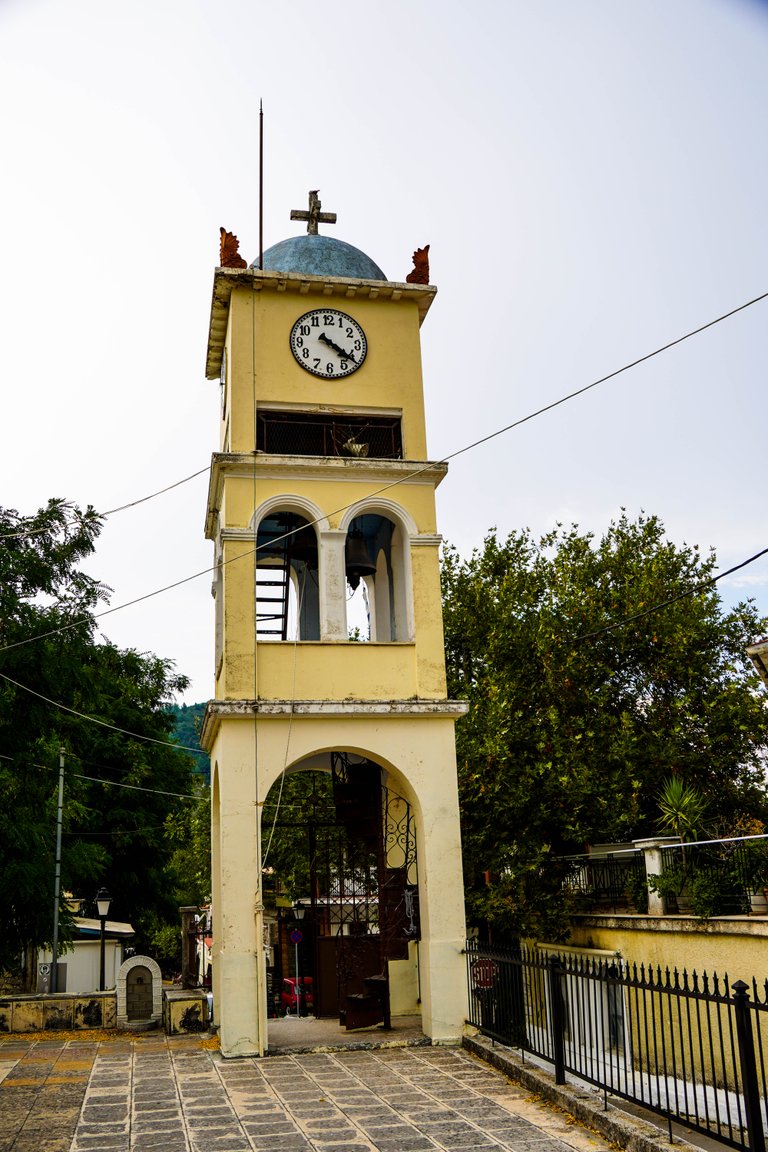
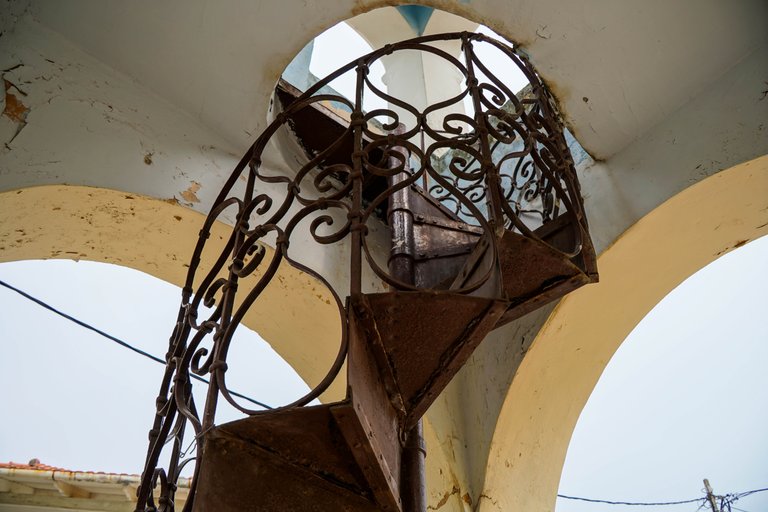
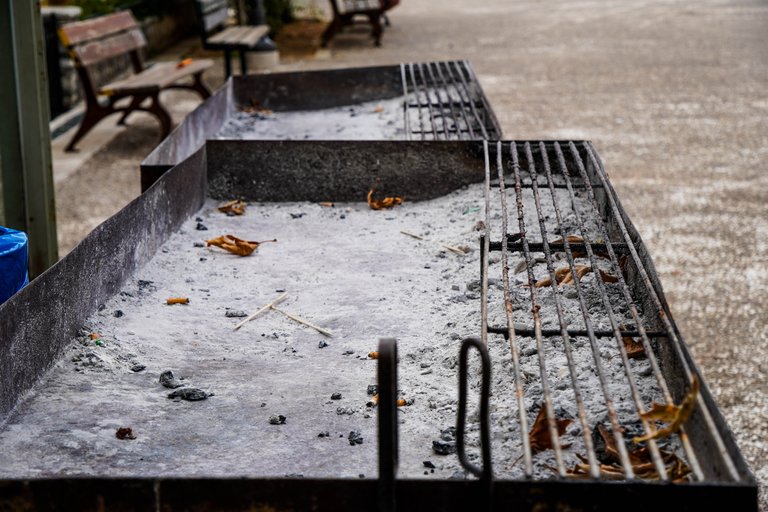
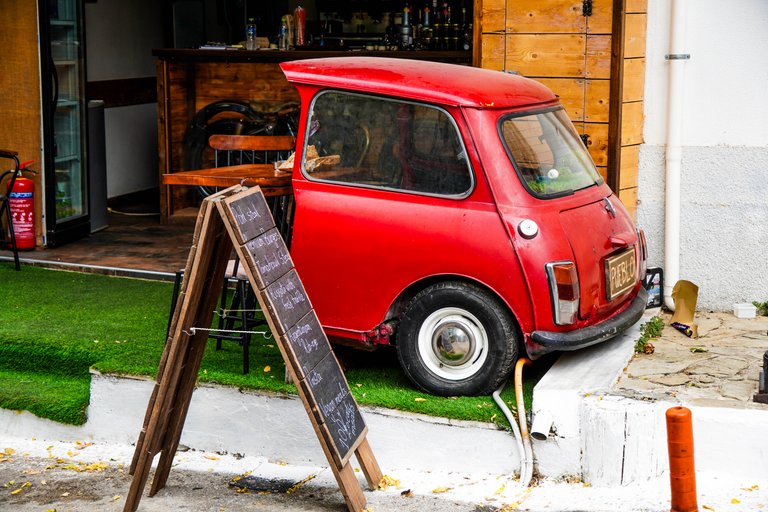
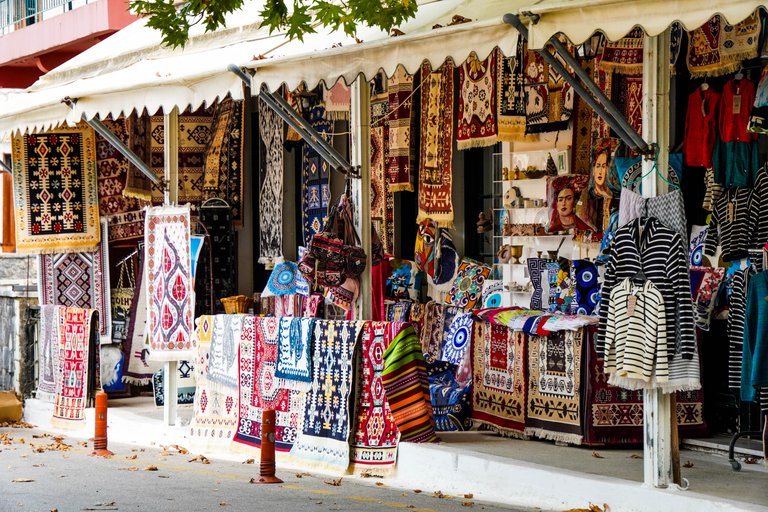
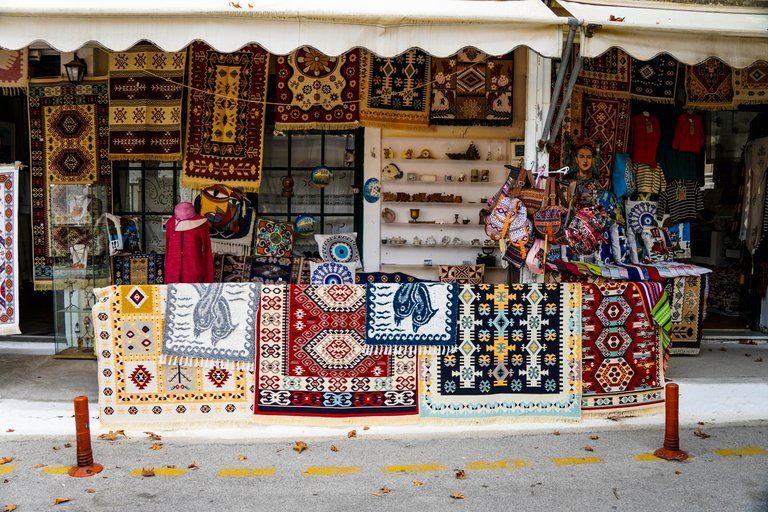
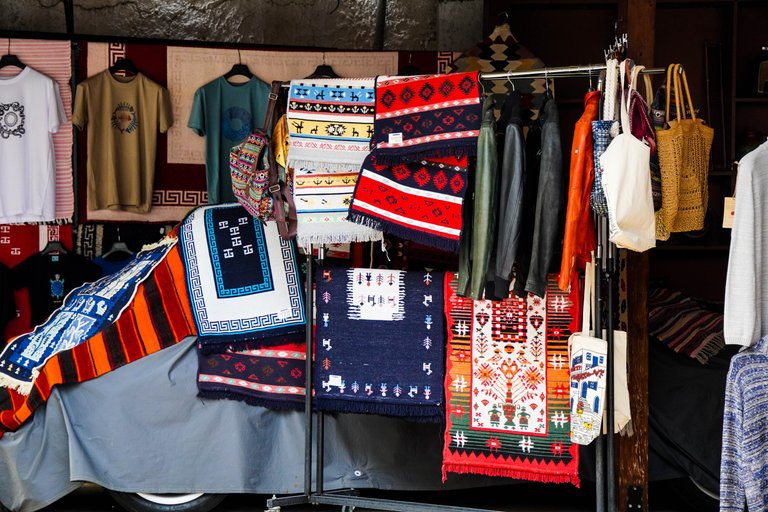
Instead, we found a nice carpentry workshop with some very nice handmade products, mostly made of olive wood.
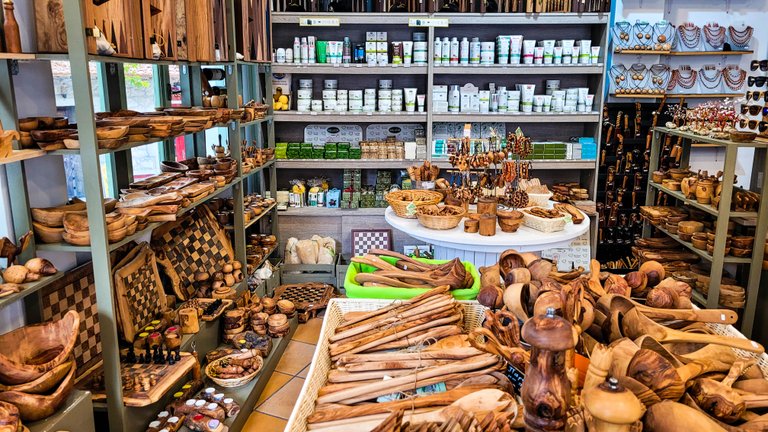
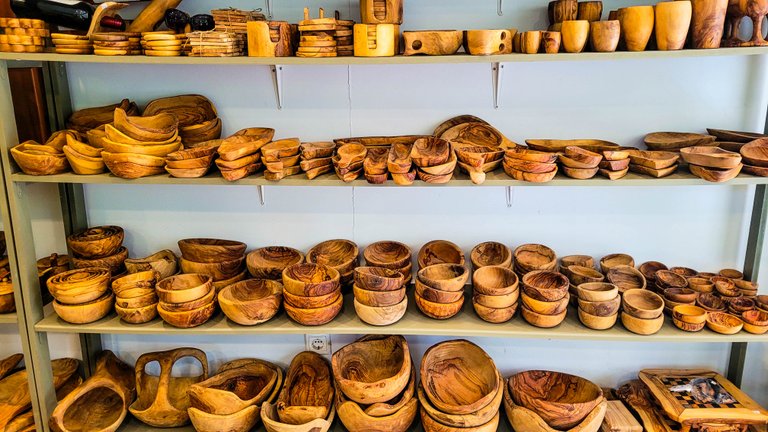
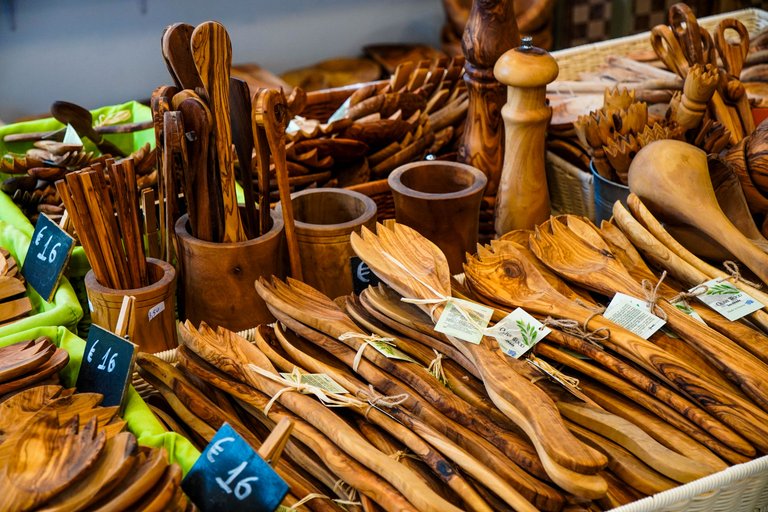
We were driving around the area towards the southeast, and we discovered that the high valley was well known for honey production. There were many stands all along the road selling honey. Of course, we stopped there and bought a few jars to bring home.
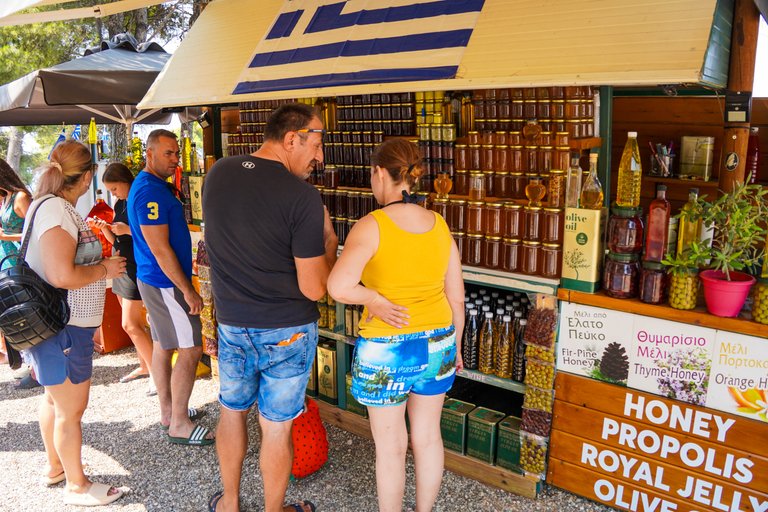
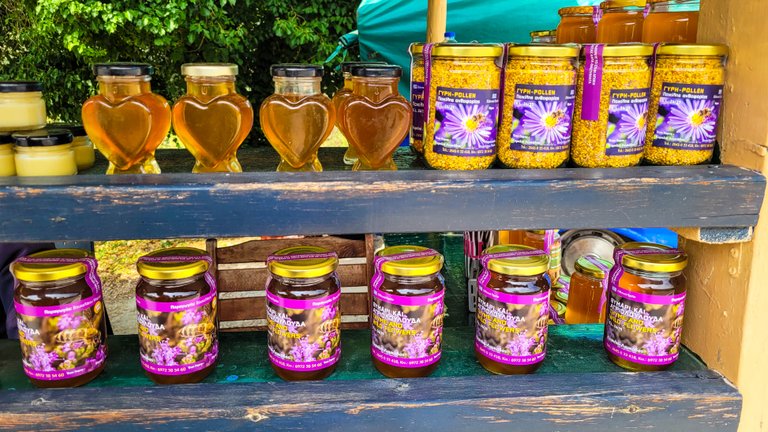
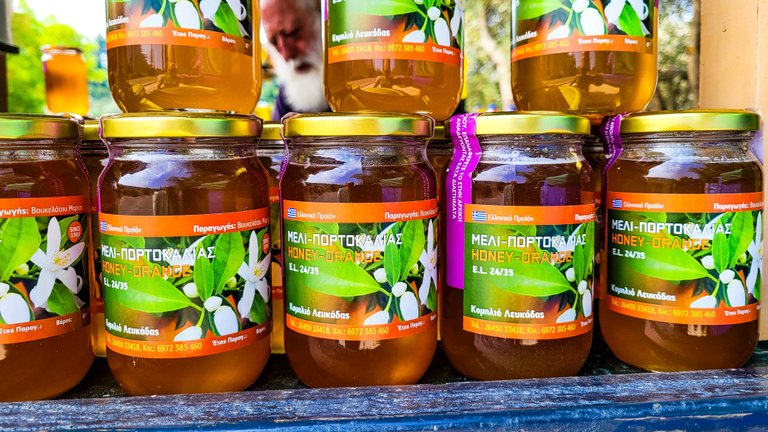

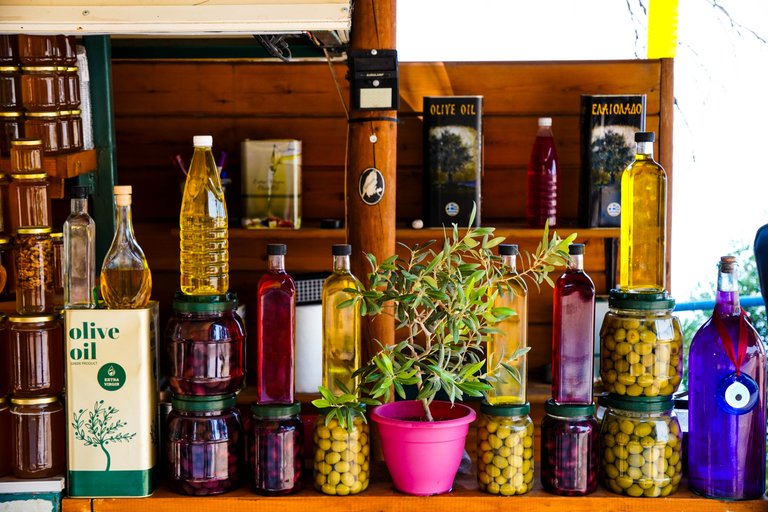
On the southern part of the island, we visited the town of Vasiliki, one of the largest tourist areas. We had just a short drive around and then made a short walk along the seaside. A very vibrant and busy location, being a popular surfer’s point, a port, and marina.
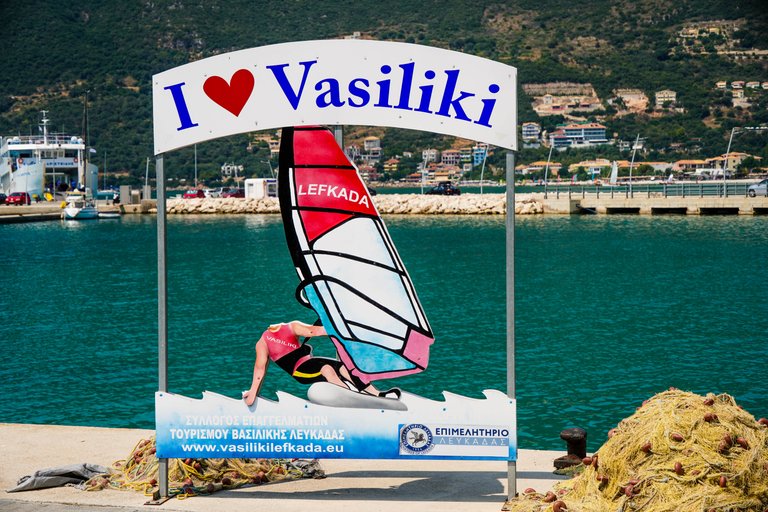
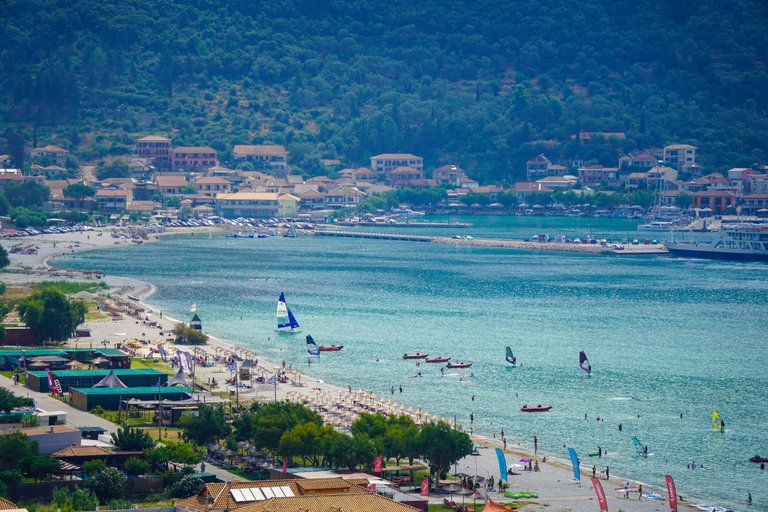
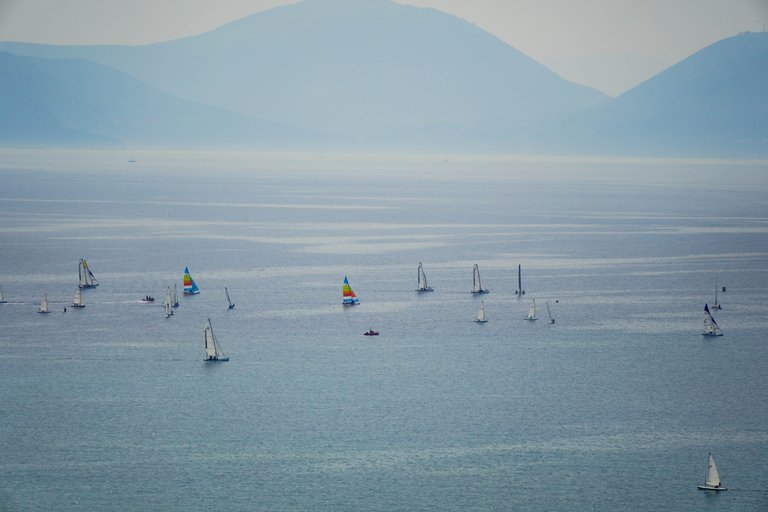
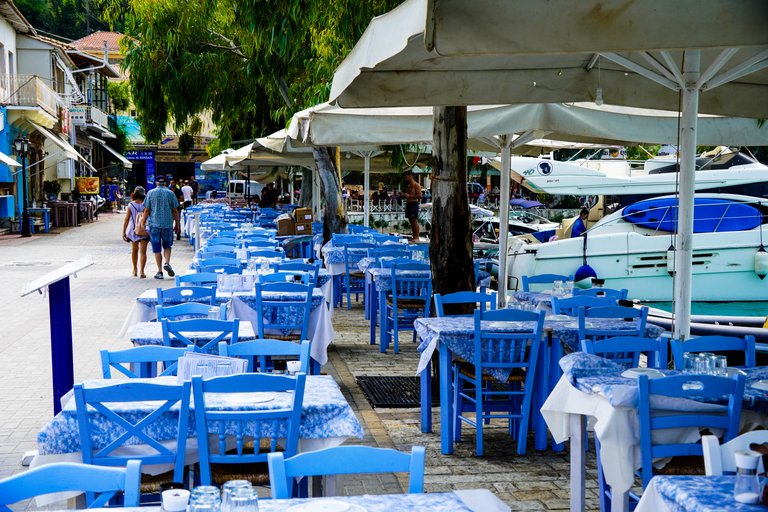
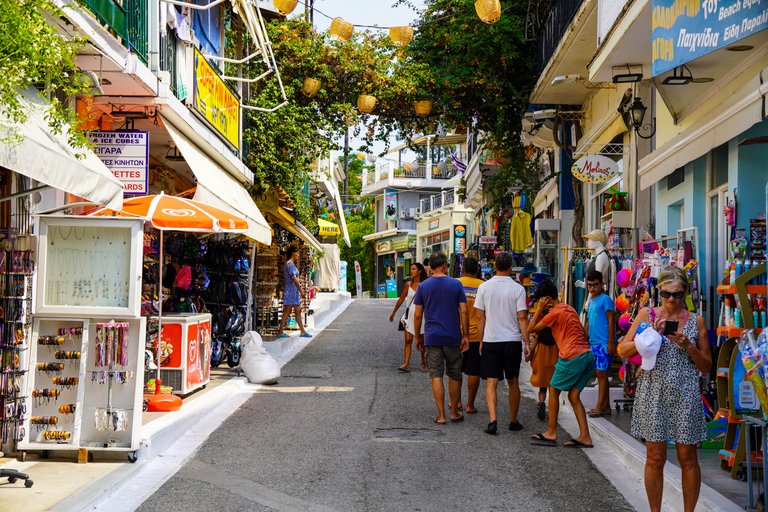
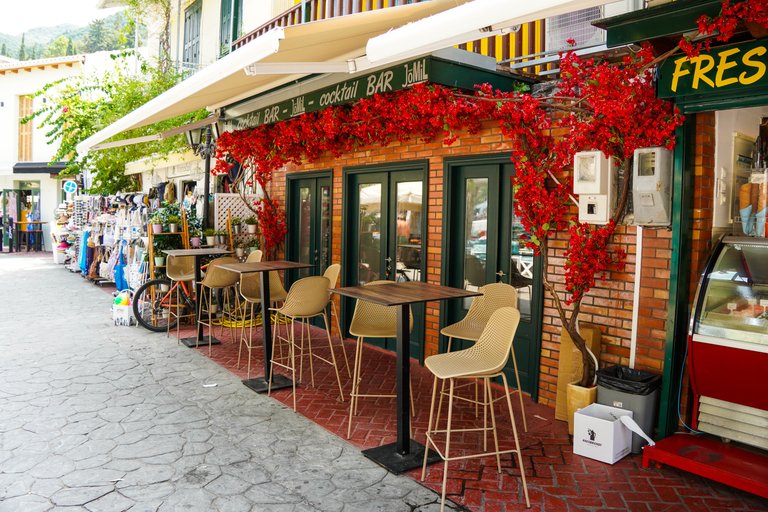
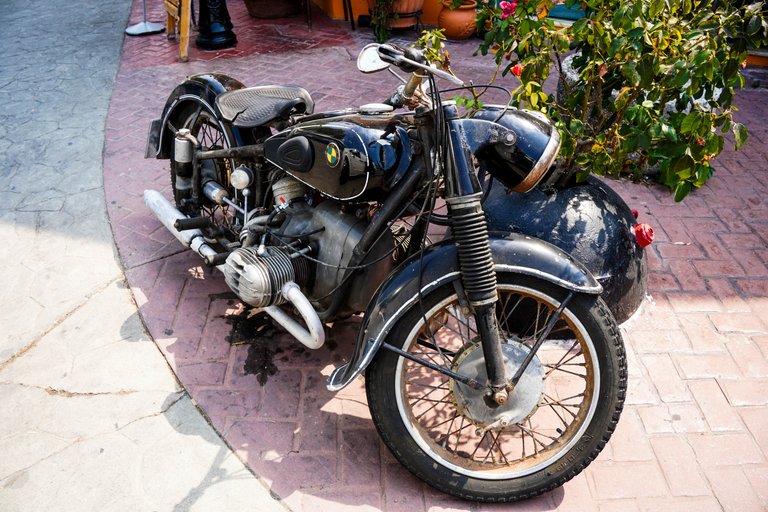
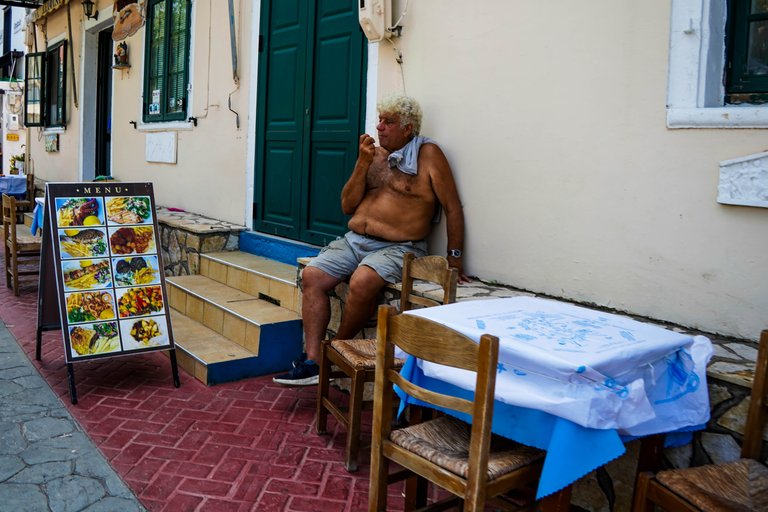
Not far from Vasiliki you will find the small town of Sivota, in our opinion, one of the nicest places on the island. The town is situated around a blue crystalline cove, surrounded by verdant hills and lush green forests. It is one of the most popular tourist resorts in Lefkada, and they say that is quite lively in the evenings. We were there during the day, and it was quite calm, just as we like it. There are many nice restaurants, cafes, and shops, and you can easily spend some time just wandering around.
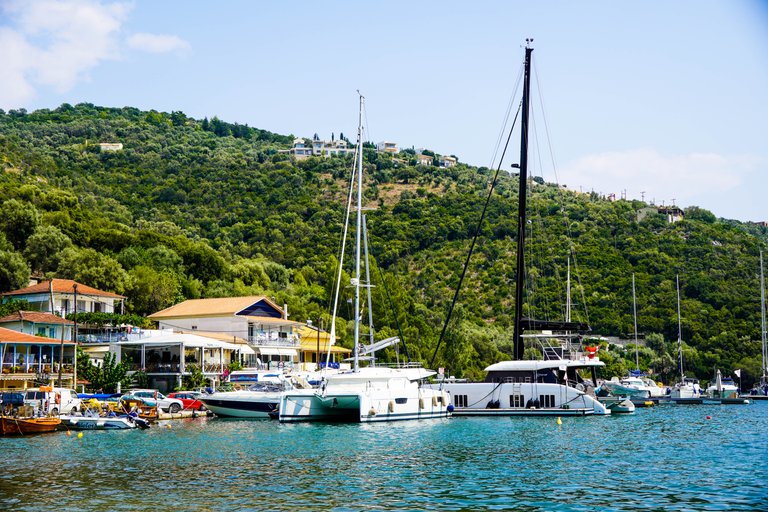
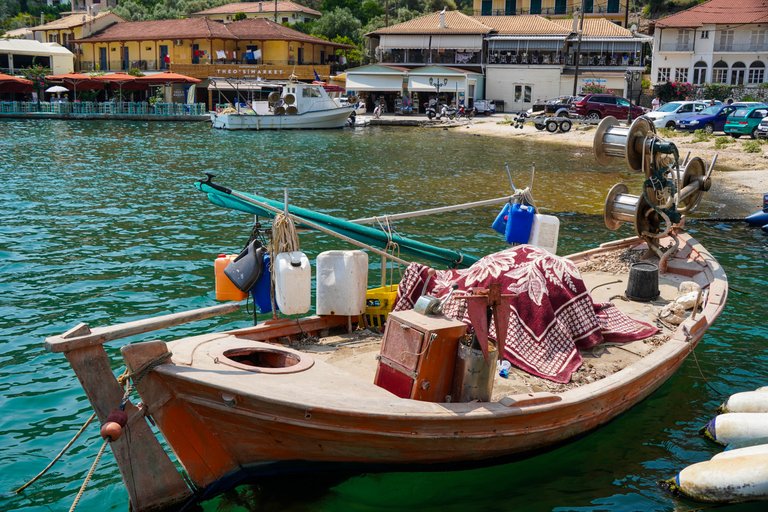
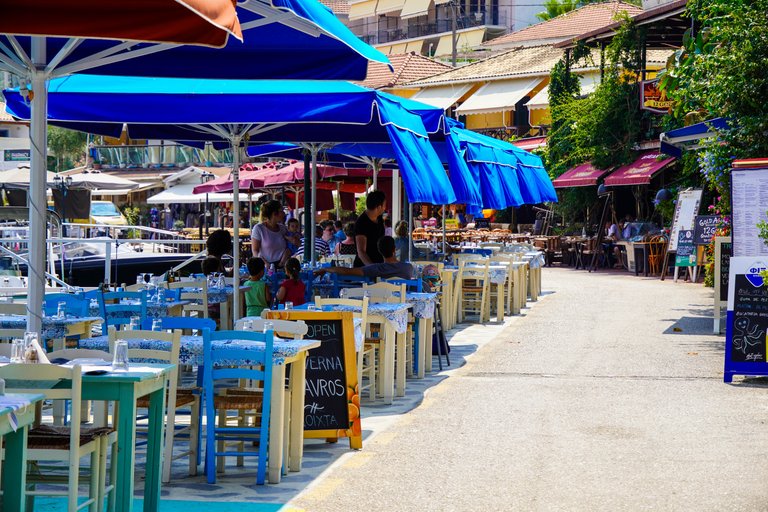
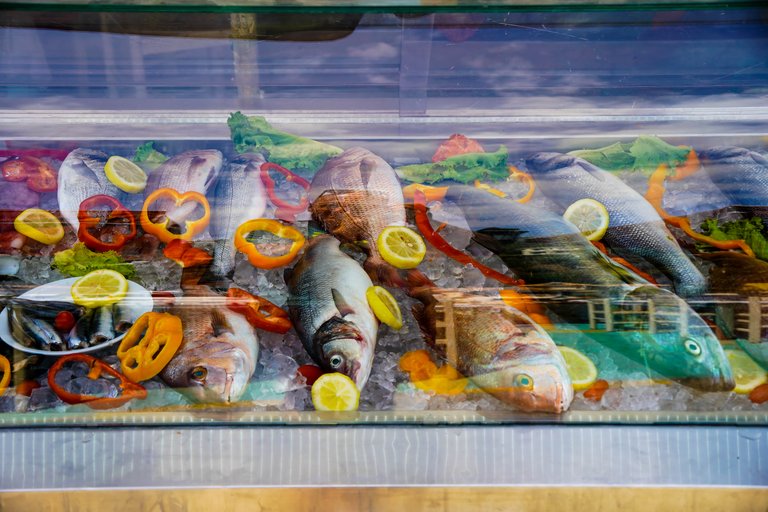
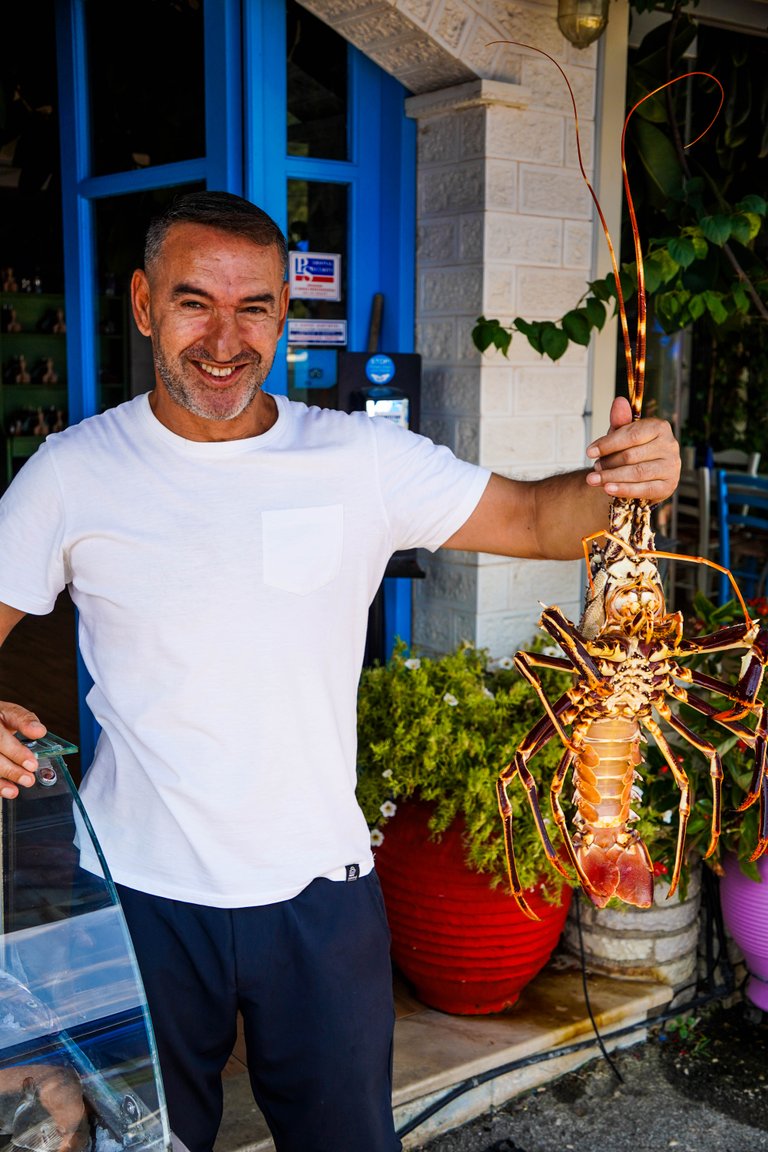
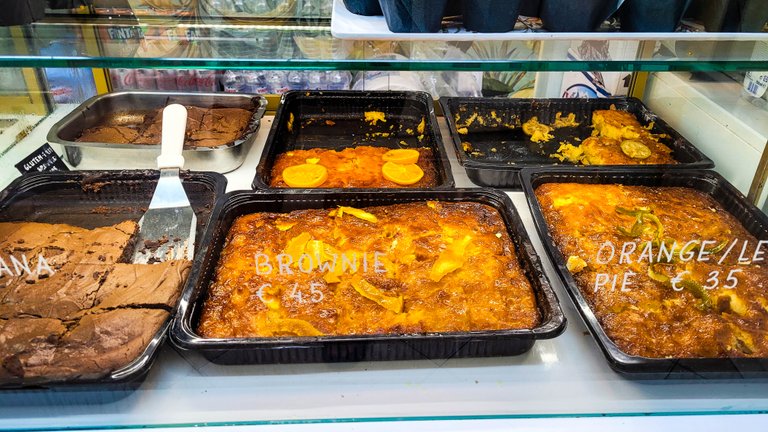 | 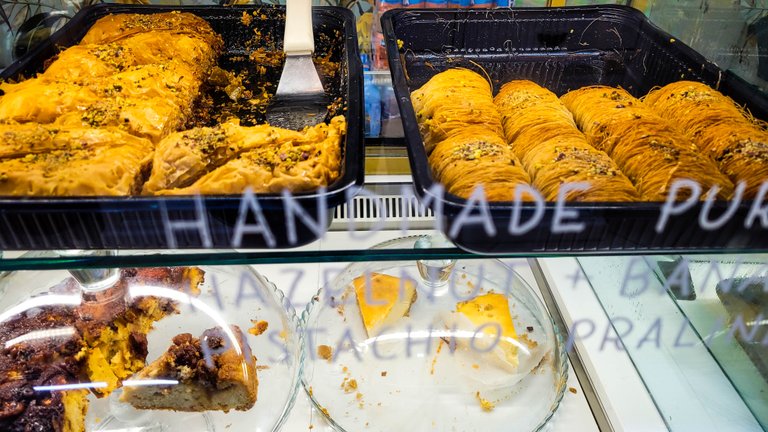 |
|---|
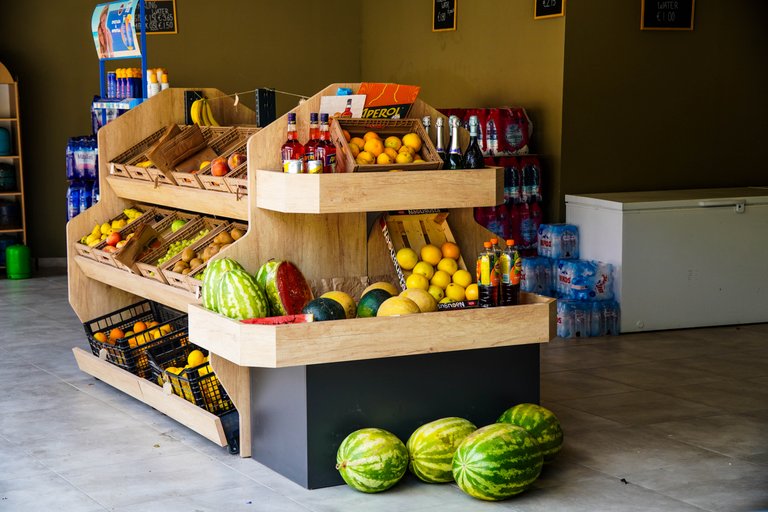 | 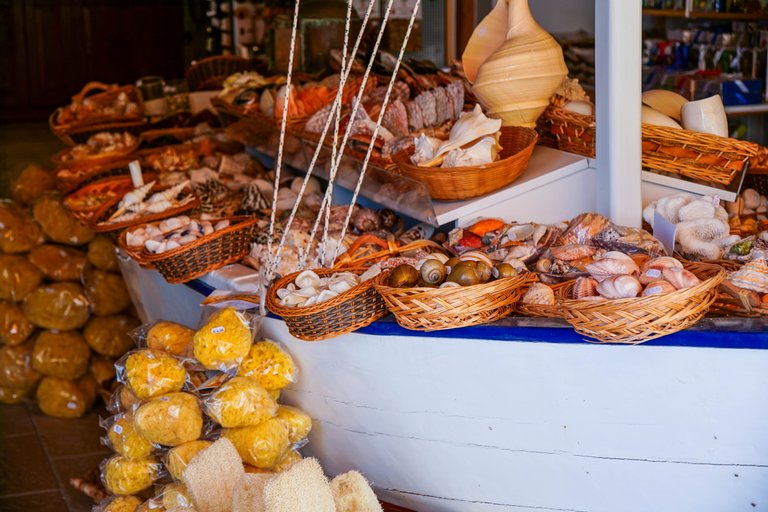 |
|---|
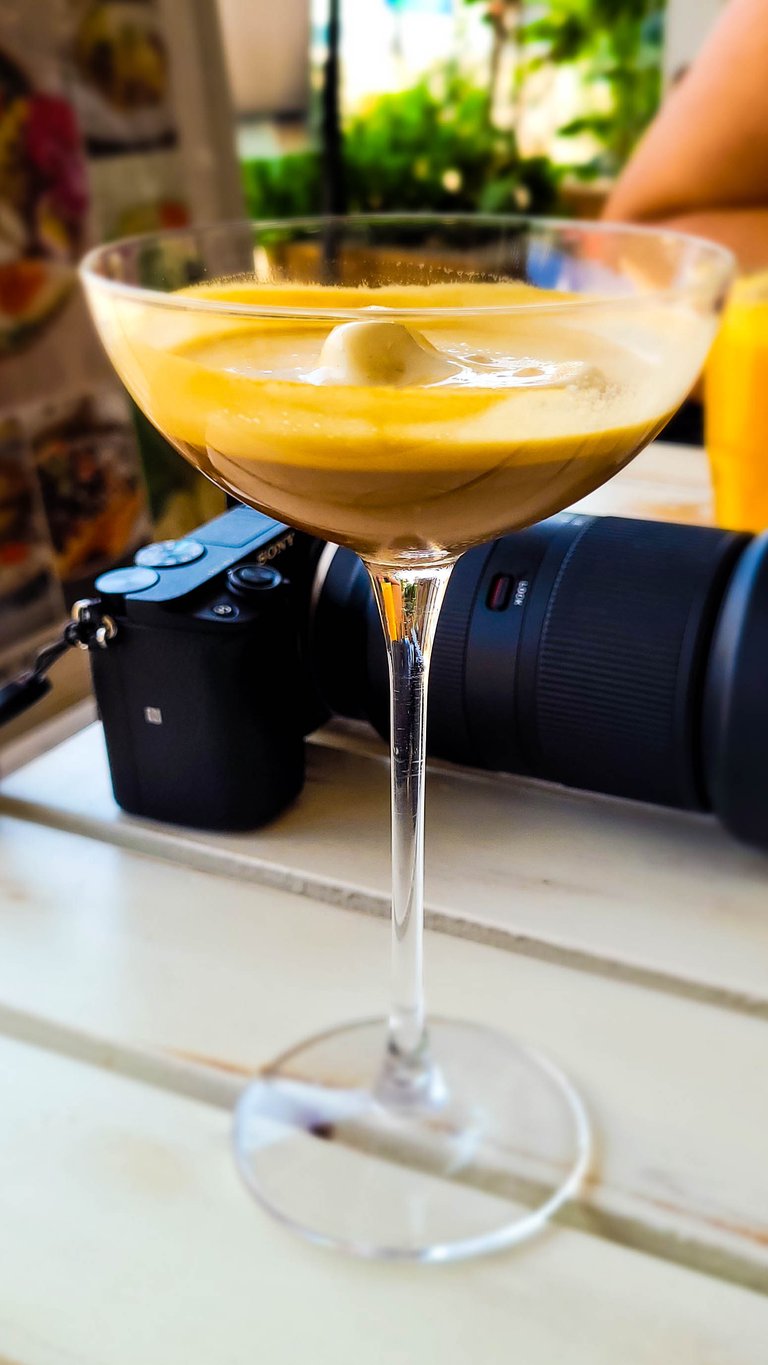
Without doubt, the most famous beach on Lefkada is Porto Katsiki, also named one of the nicest beaches in Europe. The name translates as "bay of goats," since once the beach was catered to goats only. Today, you can reach the beach by taking a block of stairs down from the parking space.
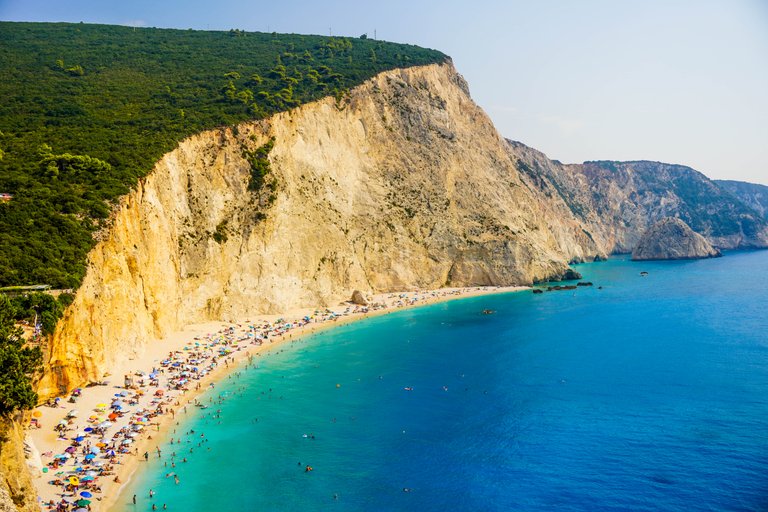
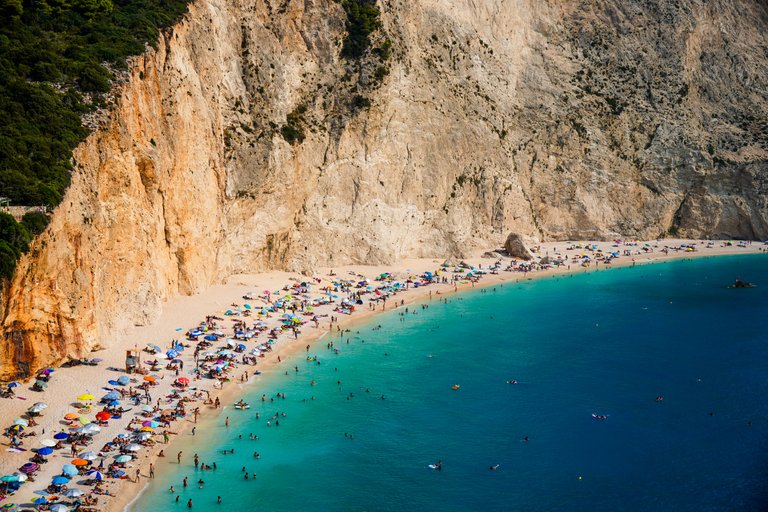
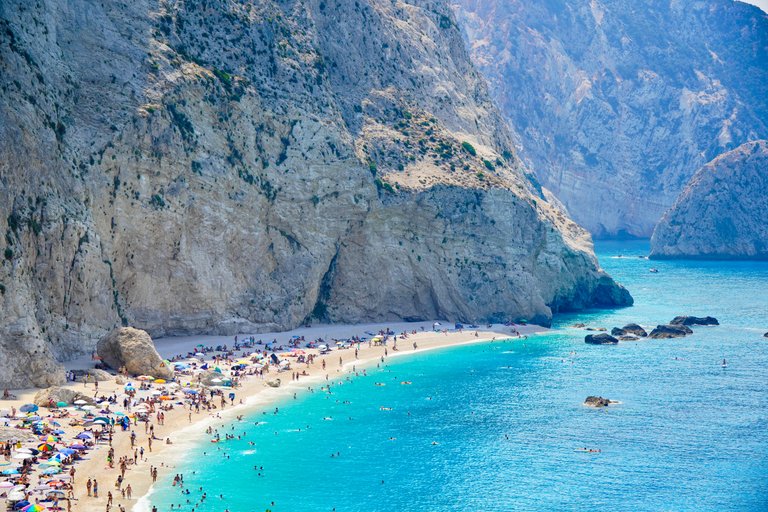
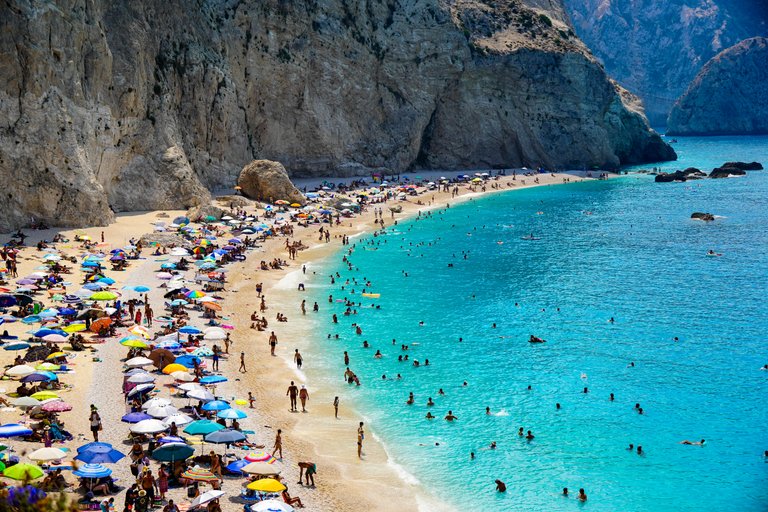
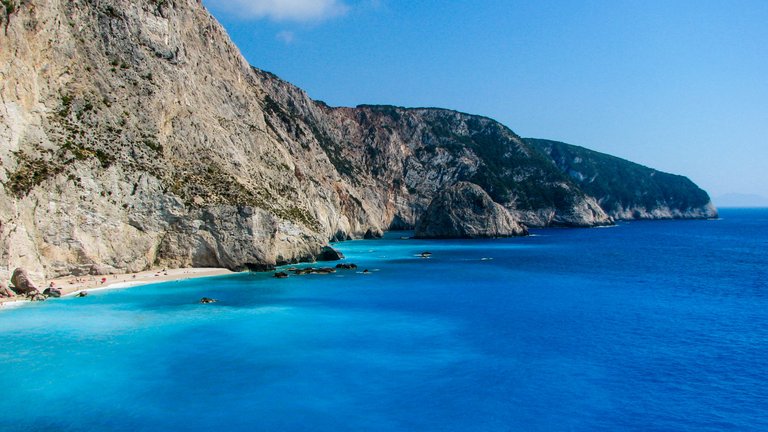
Being so famous, the beach is also very visited, so be prepared for a bit of a crowd. In high season, there will also be many tourist boats that will bring tourists directly to the beach. The white rocky walls behind the turquoise sea are picture perfect, but there are many signs that you are not allowed to stay near the walls since some parts may crumble.
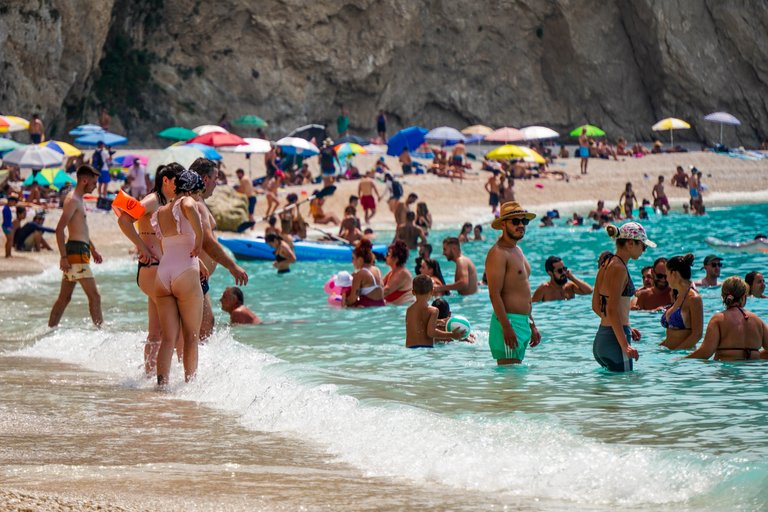
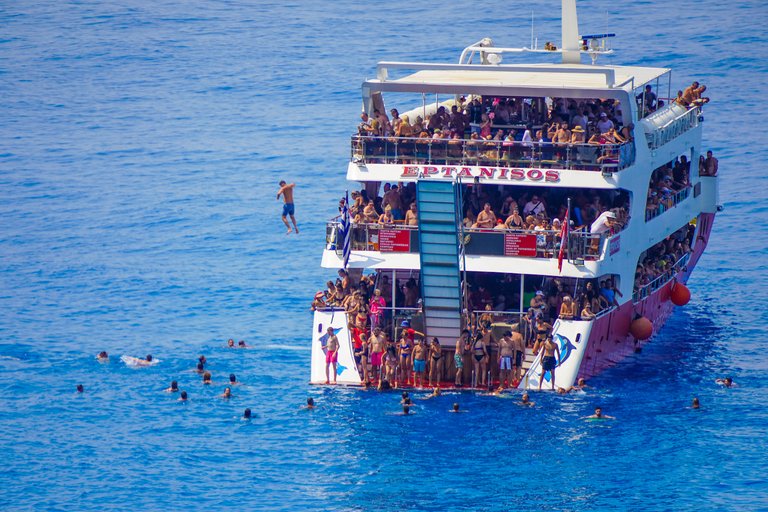 | 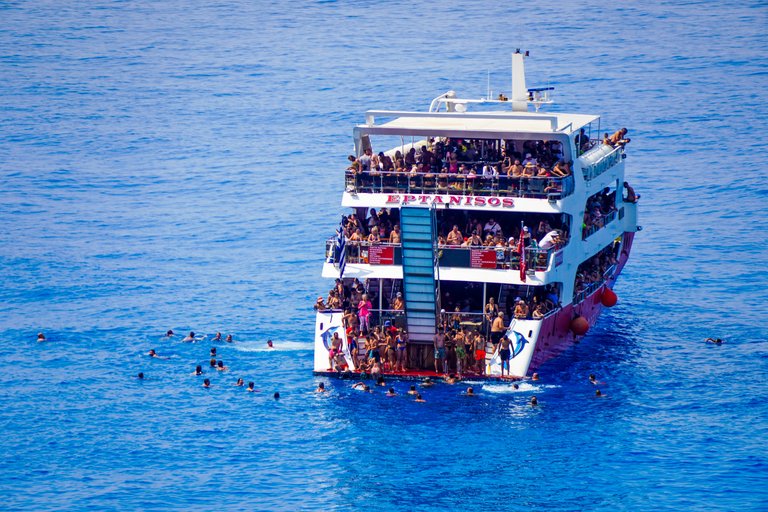 |
|---|
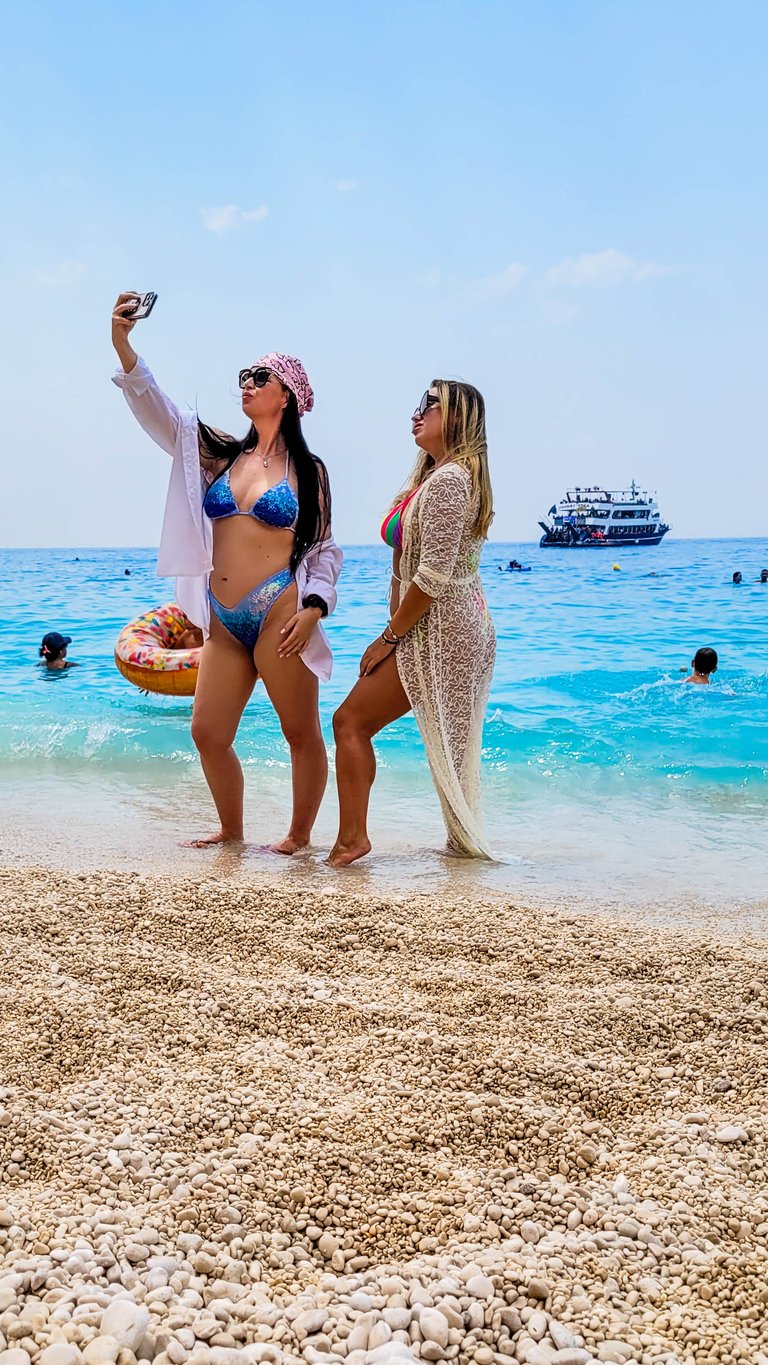
There are many sunbeds on the beach, which are available to visitors for a fee. The sea is an extremely beautiful turquoise color. The water level rises quite quickly, so caution is required for non-swimmers. Overall, very well organized; you can even order your food at the bar above the beach, and they do deliver it directly to the beach. The white rocky walls behind the turquoise sea are picture perfect, the water is clear, and yes, it is a very, very nice beach.
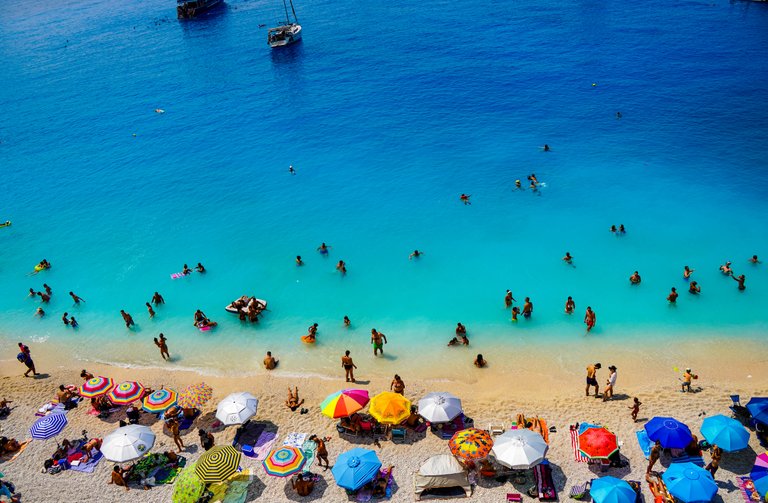
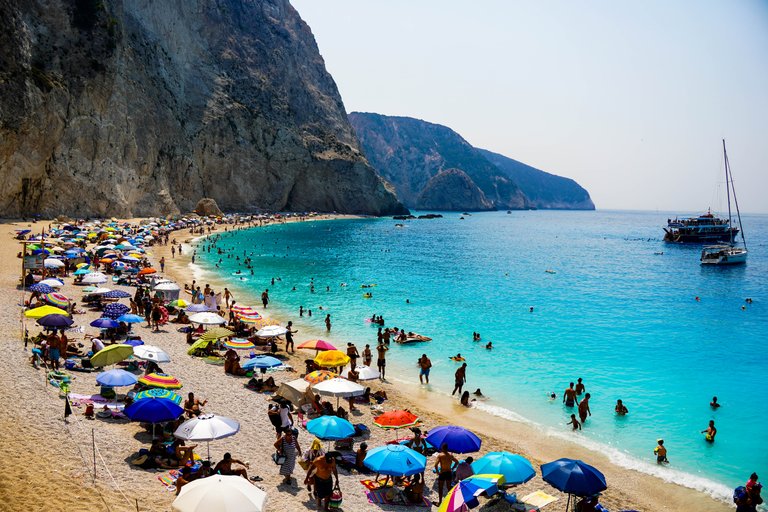
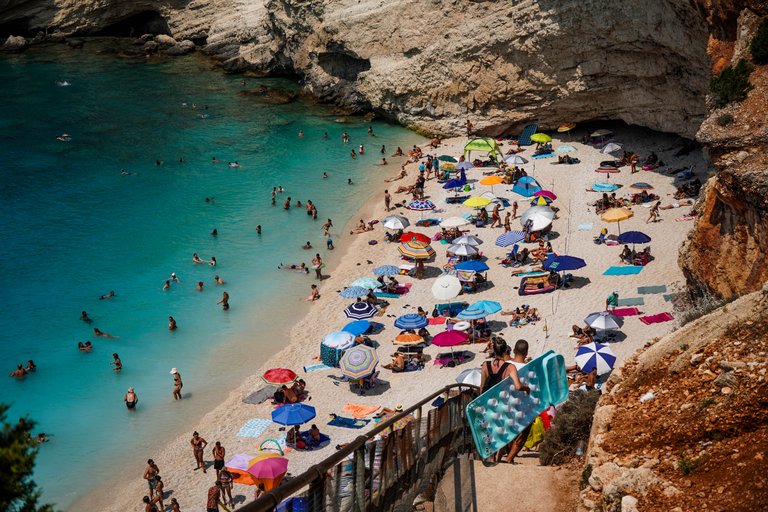
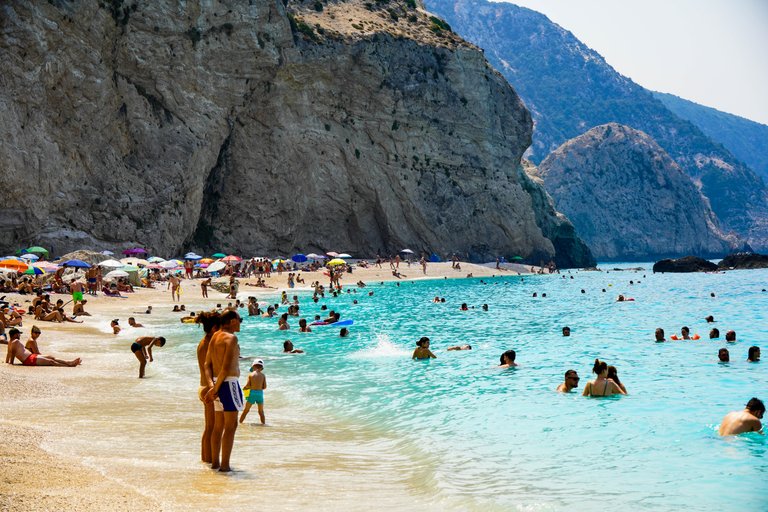
During our first visit, on the right side of the parking spot there was a view point with a great view to the beach. It was damaged in the earthquake and still was not reconstructed.
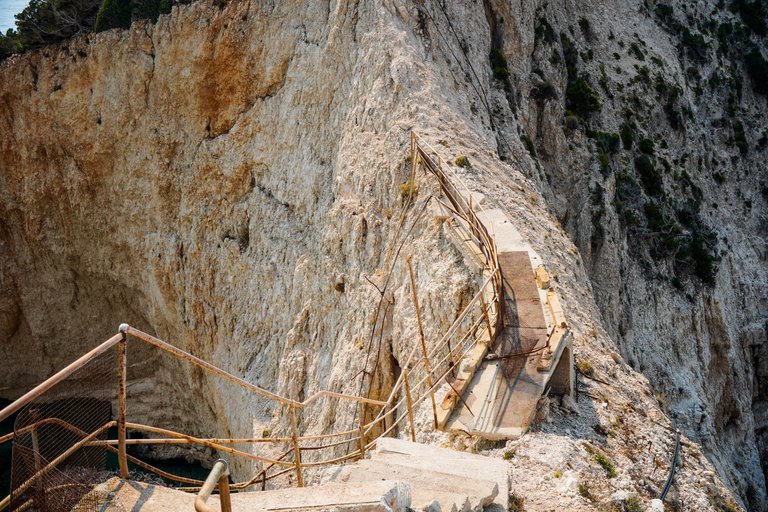

After a refreshing swim in this beautiful sea, we stopped at one of the many bars along the road, which have a wonderful view of the sea. Unfortunately, we didn't get to experience it perfectly ourselves, as the air was full of smoke brought in by the wind from one of the many wildfires from mainland Greece that were raging there at the time.
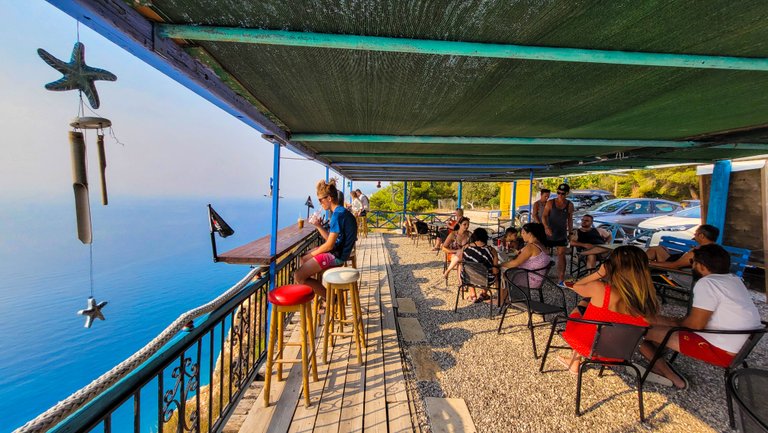
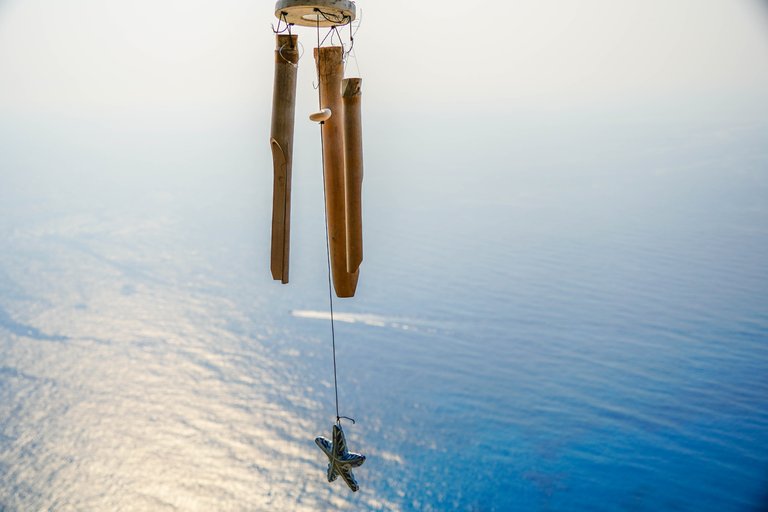
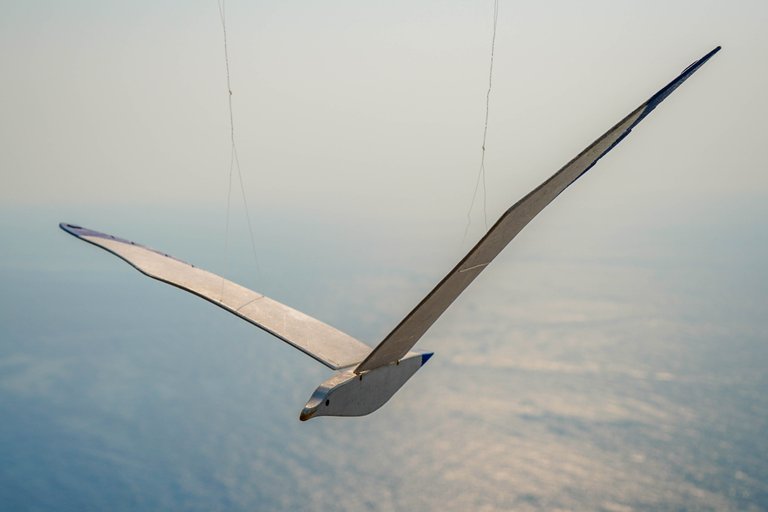
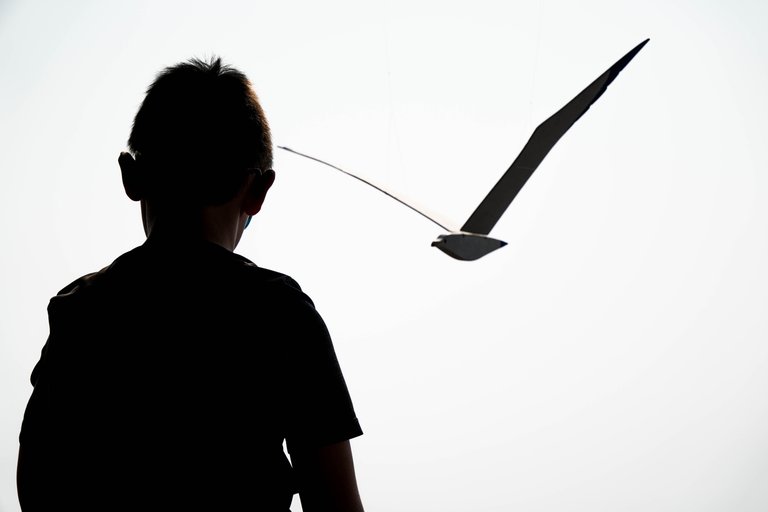
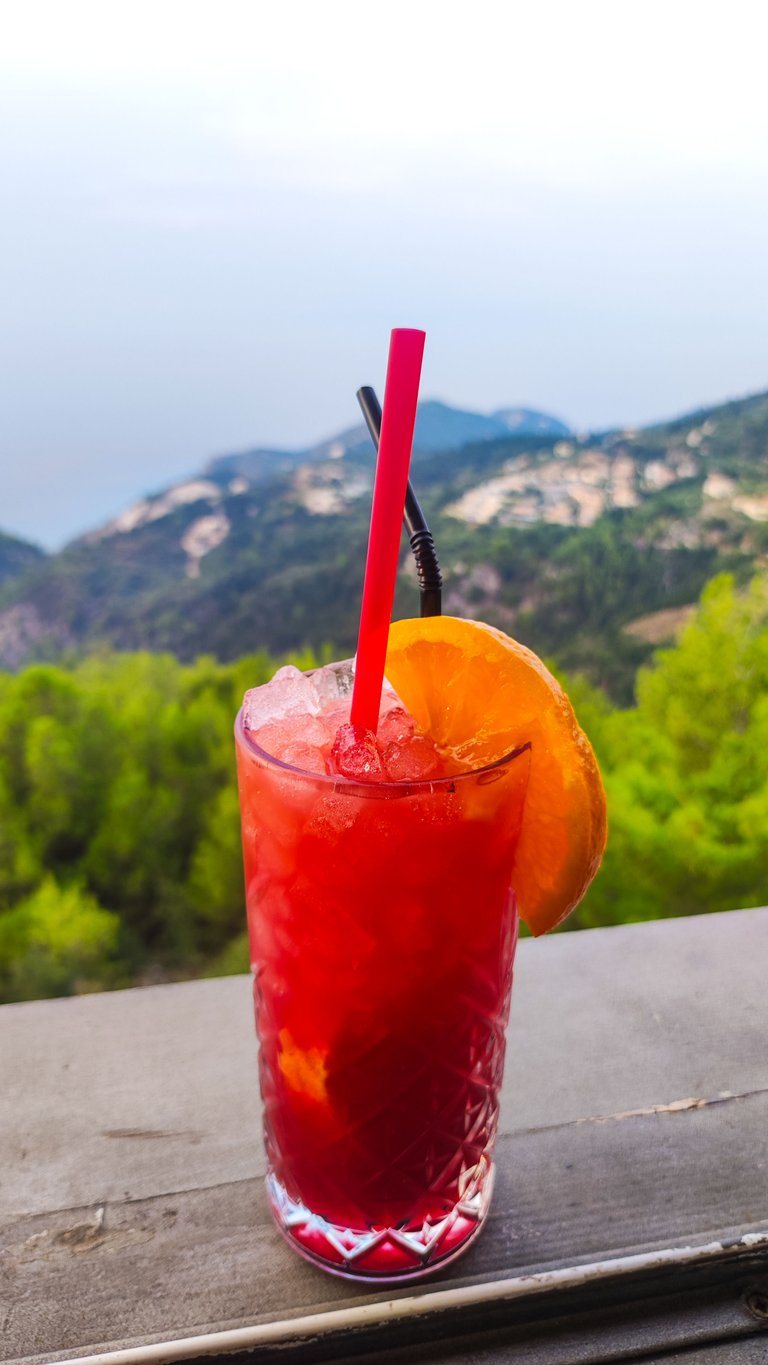
Near Porto Katsiki, you will find the Egremni Beach, also known as one of the most beautiful in Europe. This beautiful beach is accessible from the sea or by making about 350 stairs down to the beach. The violent earthquake in 2015 destroyed the stairs, which were then rebuilt only in 2021.
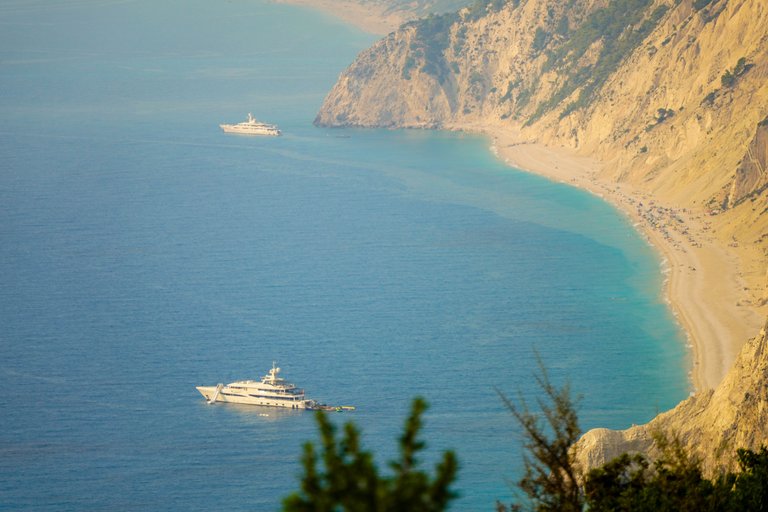
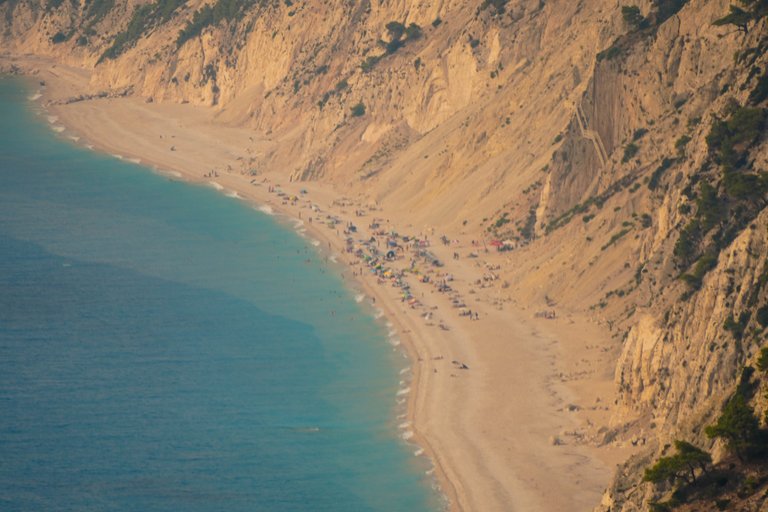
We’ve been on the beach during our first visit of the island; we found it to be a nice beach, but really nothing that special; that would be worth the 350 and something steps and walking from the parking space. It was a quite hot day, and we all agreed that we would admire it just from the top.
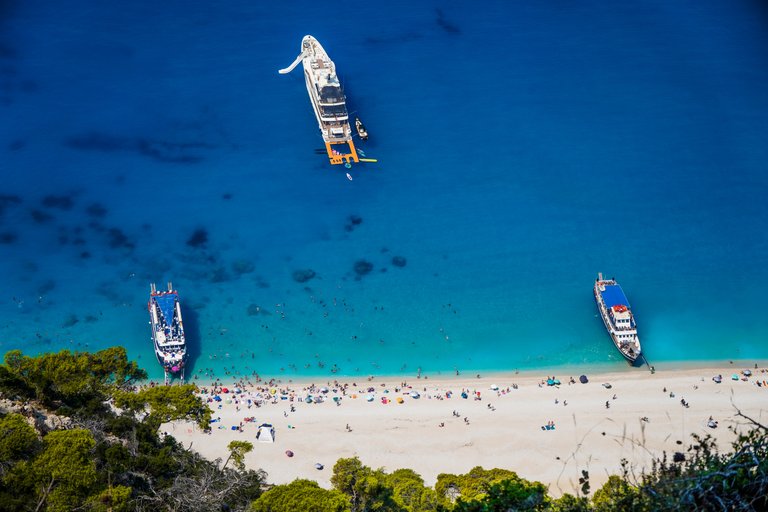
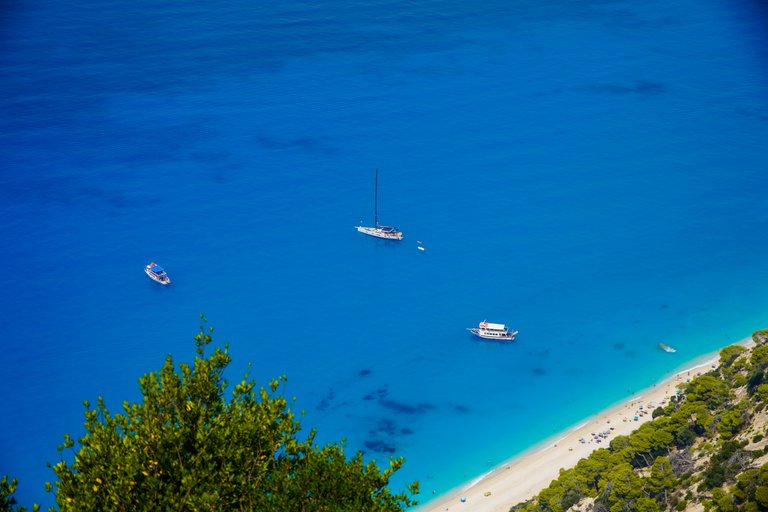
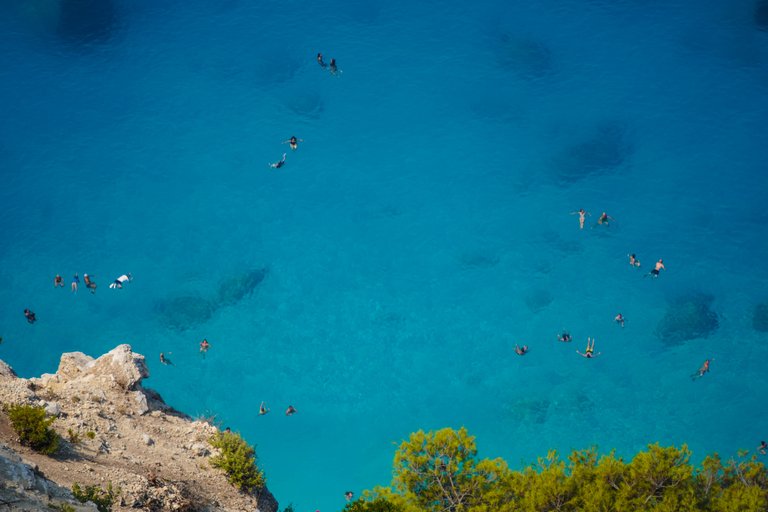
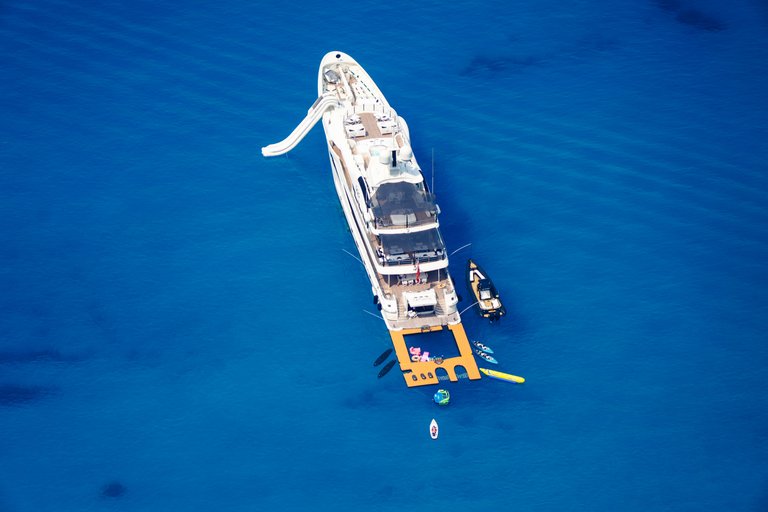 | 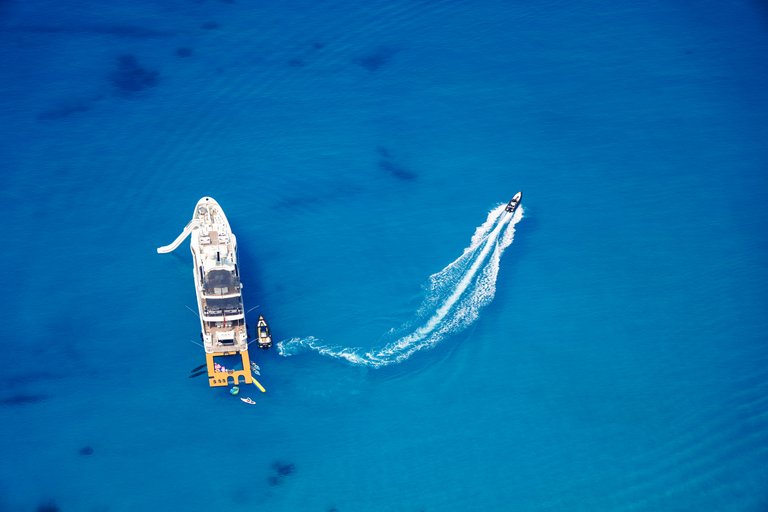 |
|---|
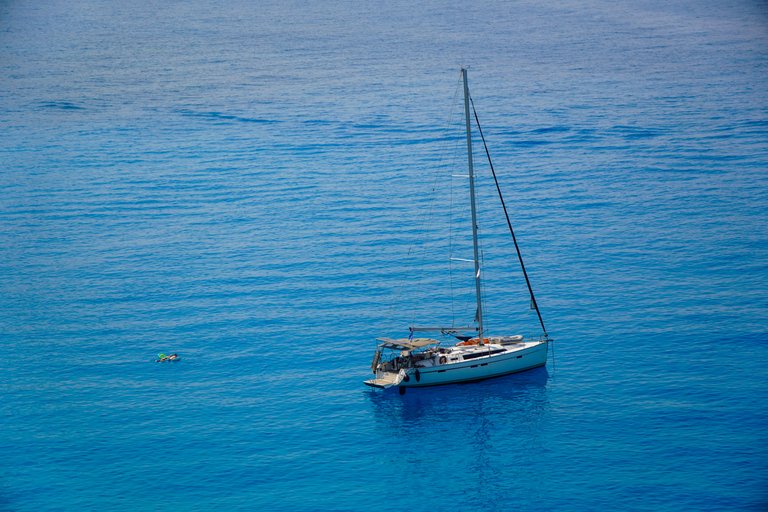 | 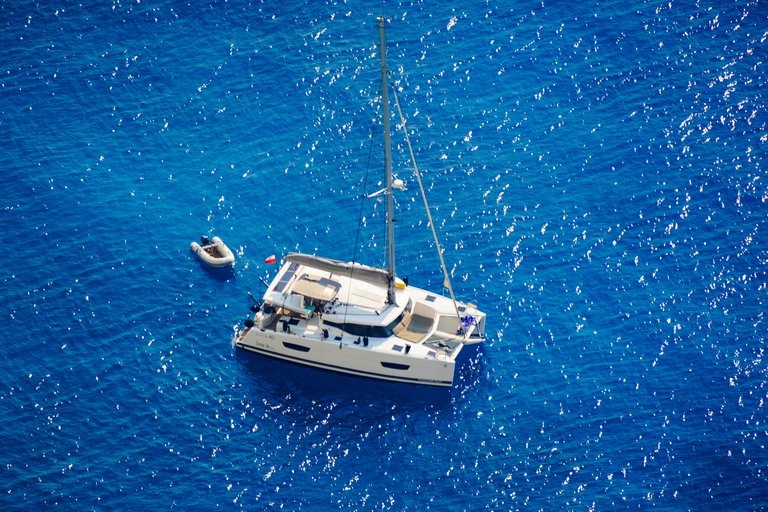 |
|---|
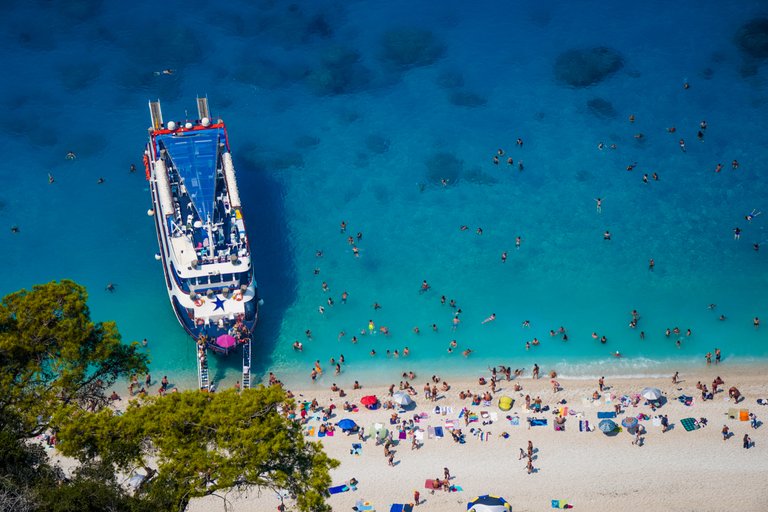
We also drove along a scenic narrow road to the southernmost point of the island. There, at the top of 60-metre-high wild cliffs, stands a lighthouse more than 130 years old, with a 14-metre-high tower. In ancient times, people were sacrificed from these cliffs to the great god Apollo. Today, lobsters are caught beneath them. It is said to be home to the largest lobsters in the Ionian Sea.
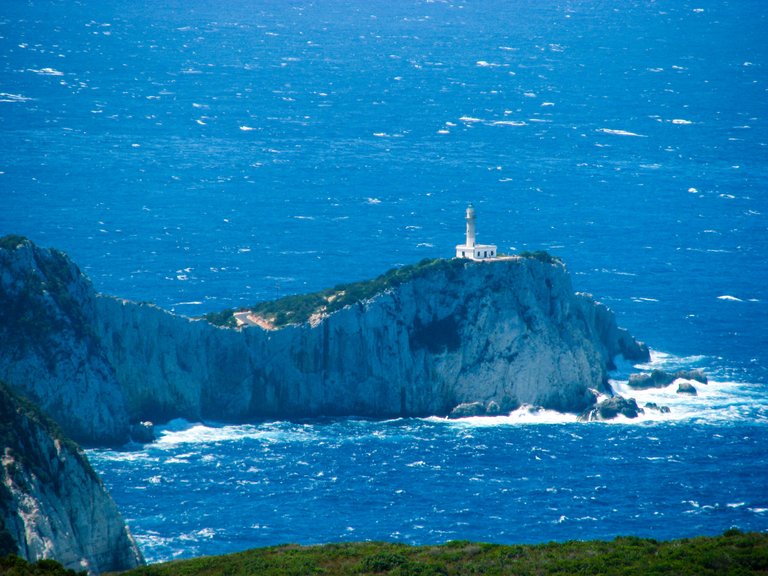
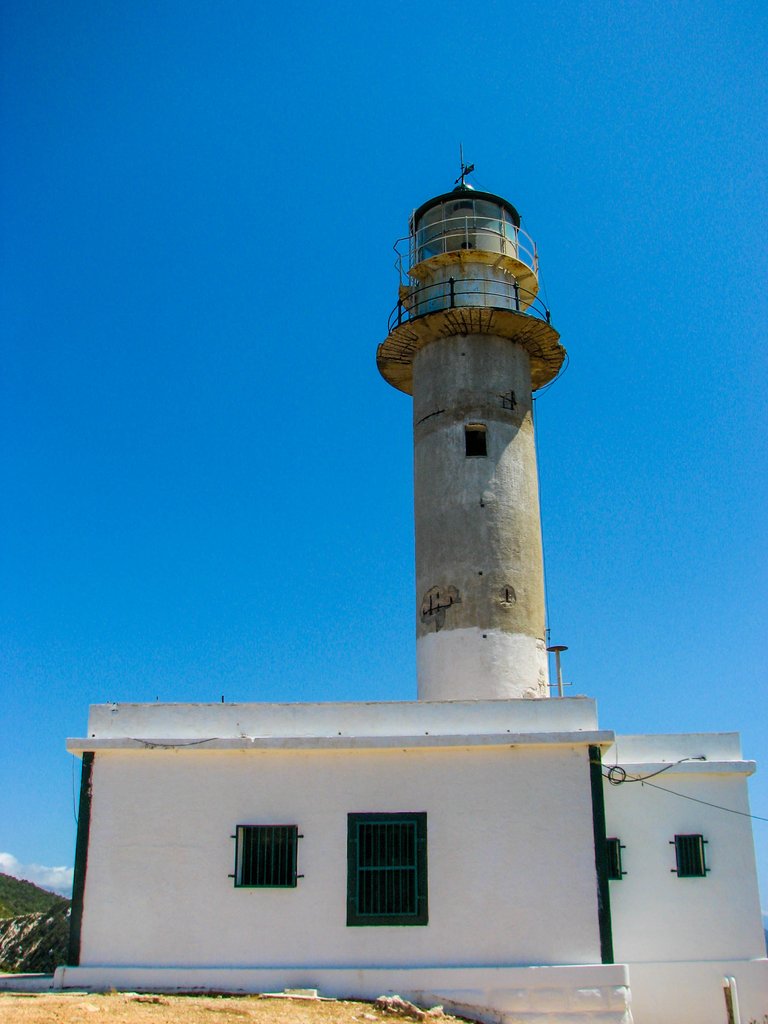
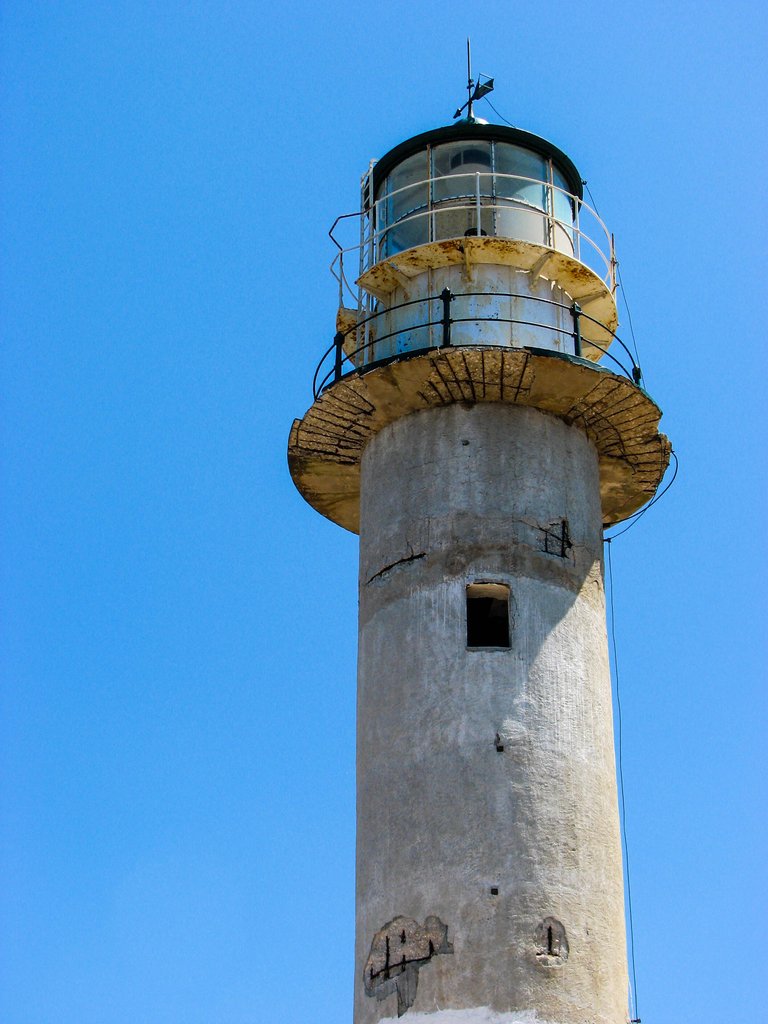
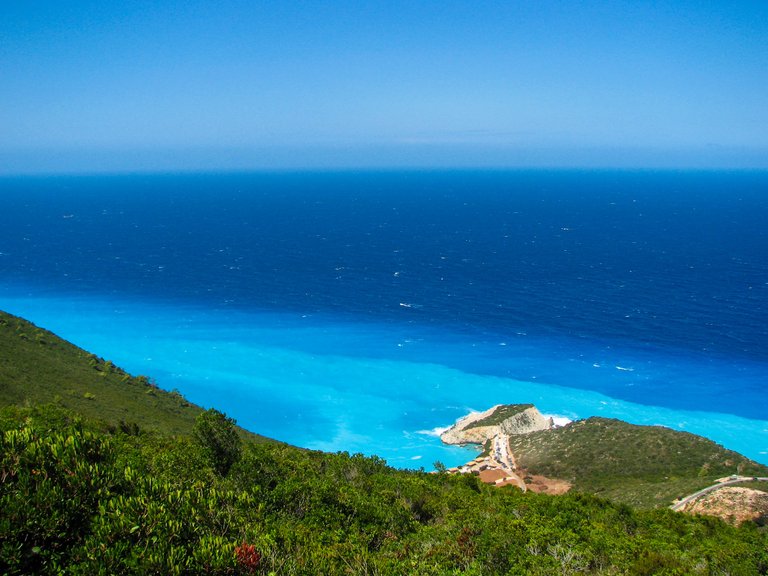

During our holiday on the island, we also visited the Feneromenis monastery, which is located on the northwestern side of the island. The Faneromeni Monastery is an important religious and cultural center on the island. It is located on a hill, overlooking the town of Lefkada.
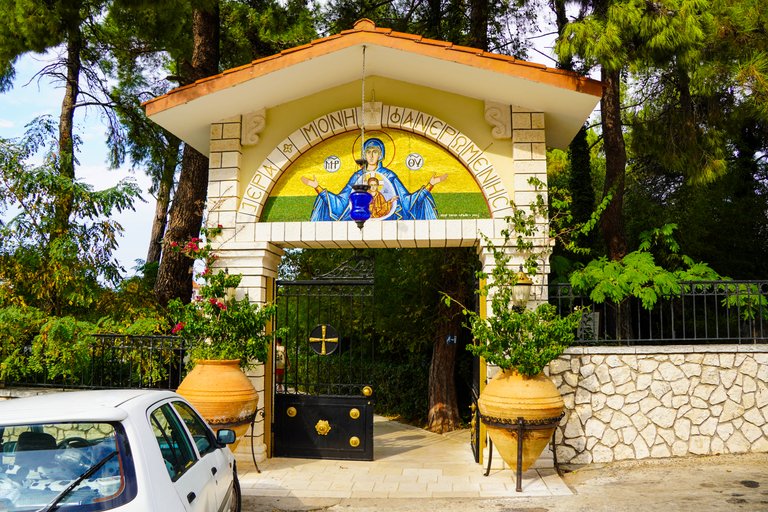
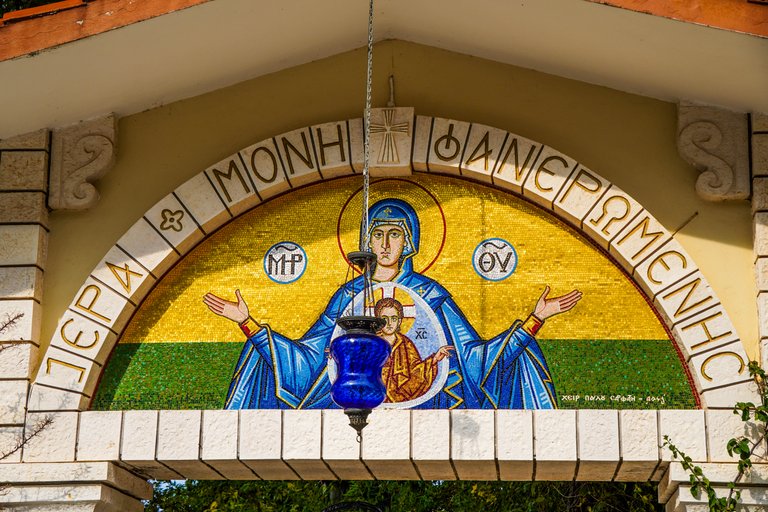
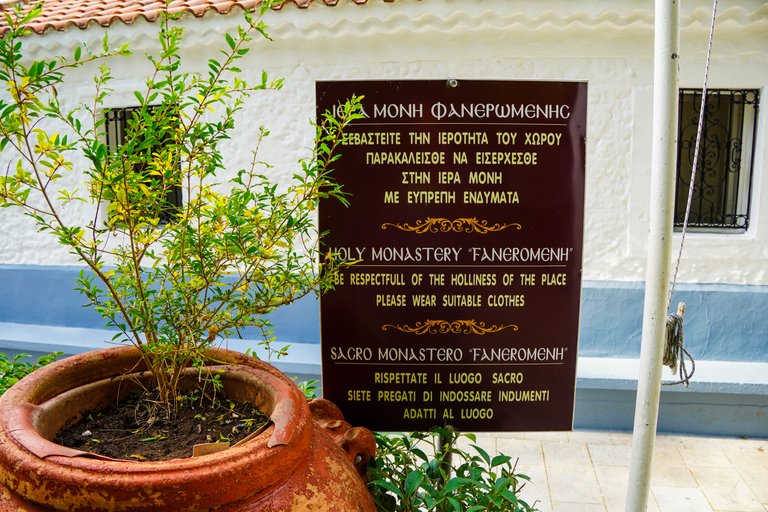
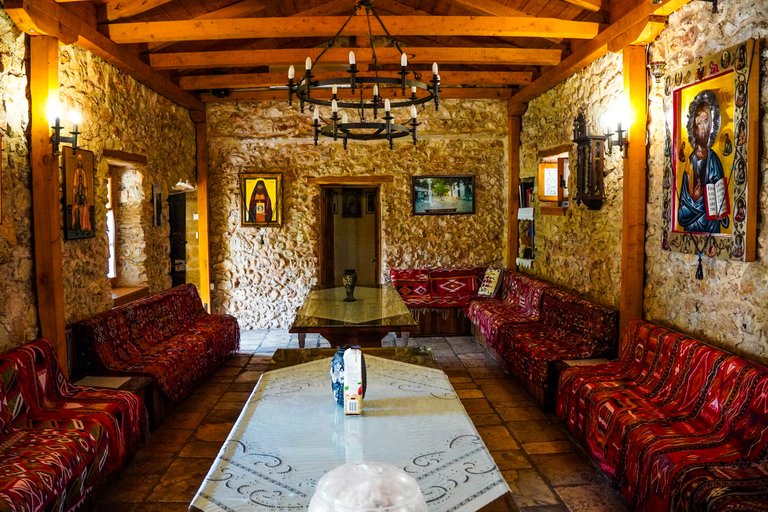
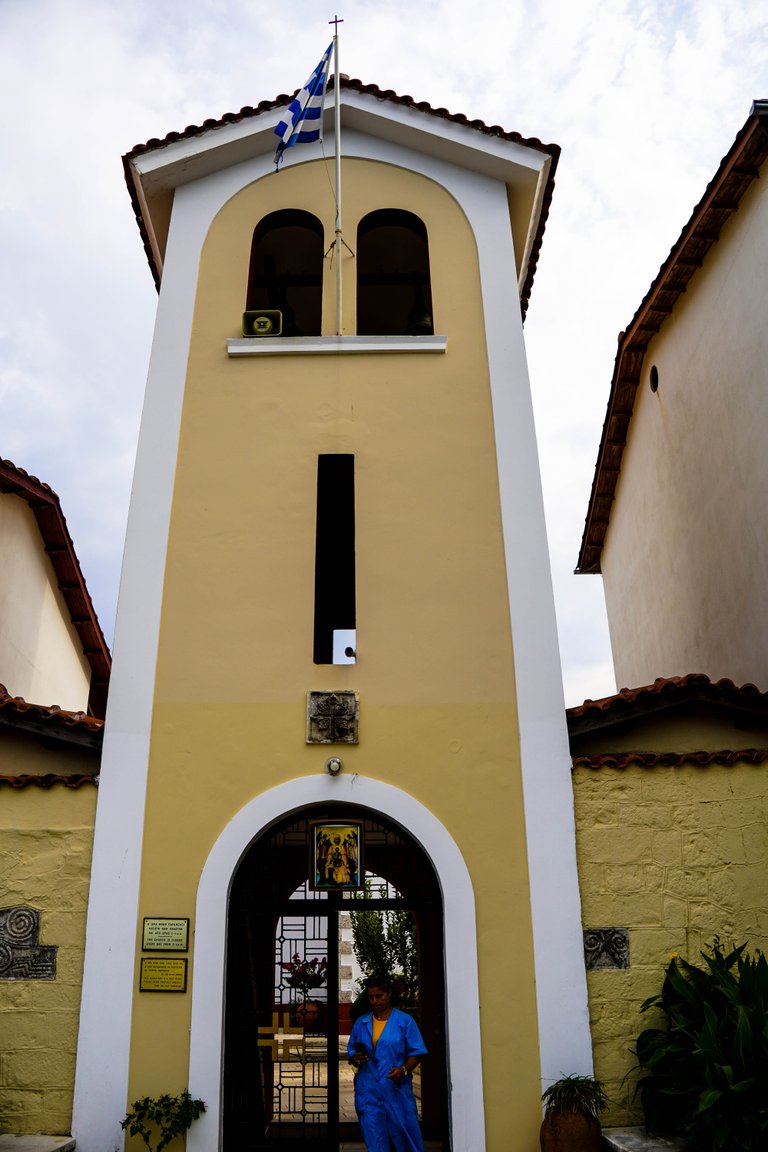
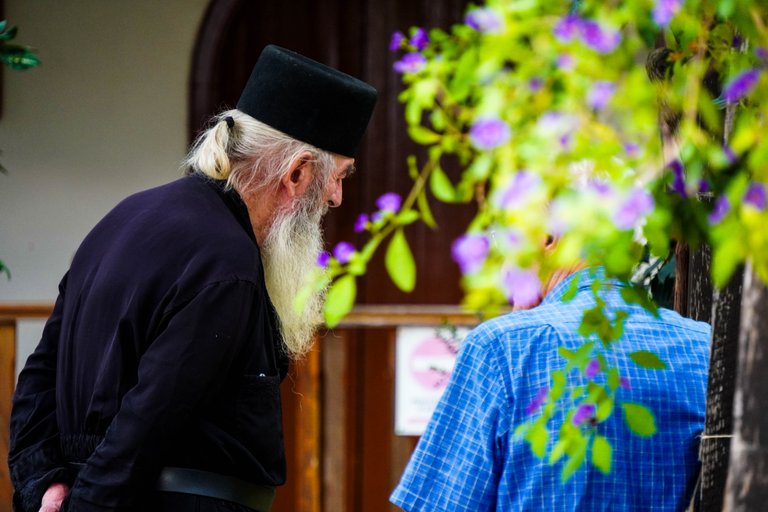
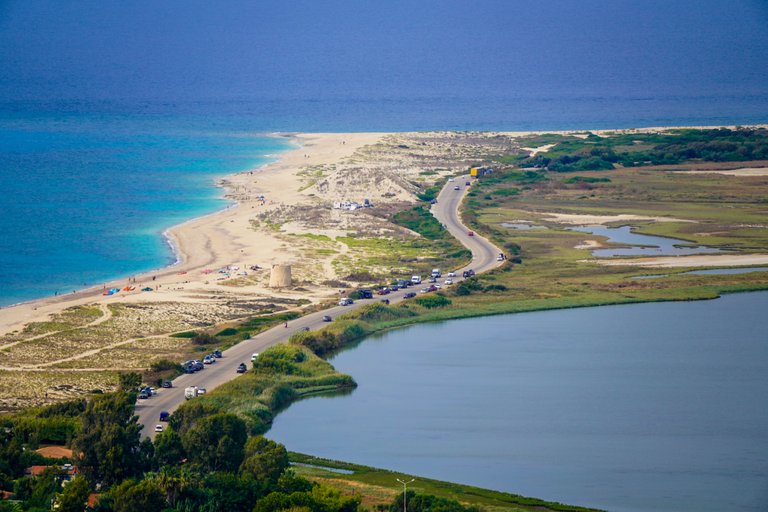
Surrounded by peaceful surroundings, this monastery is known for its beautiful architecture, bell tower, and beautiful mosaics. You can visit the interior of the monastery, where religious icons and relics are located, and walk through the beautiful gardens that surround the monastery.
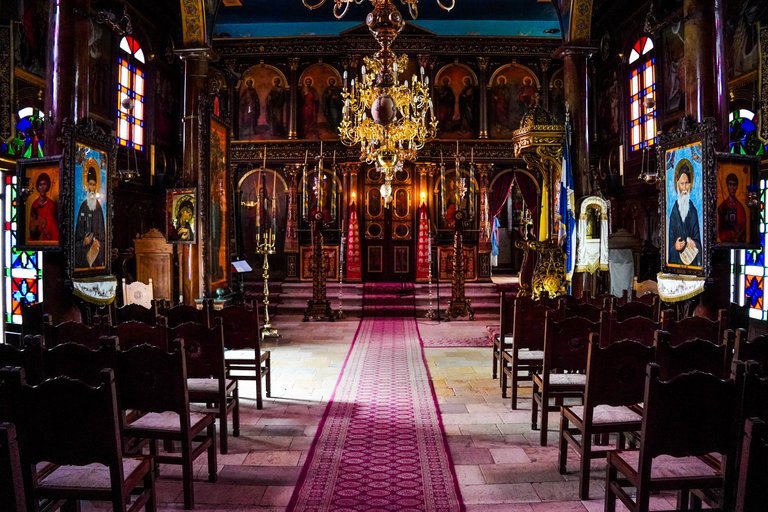
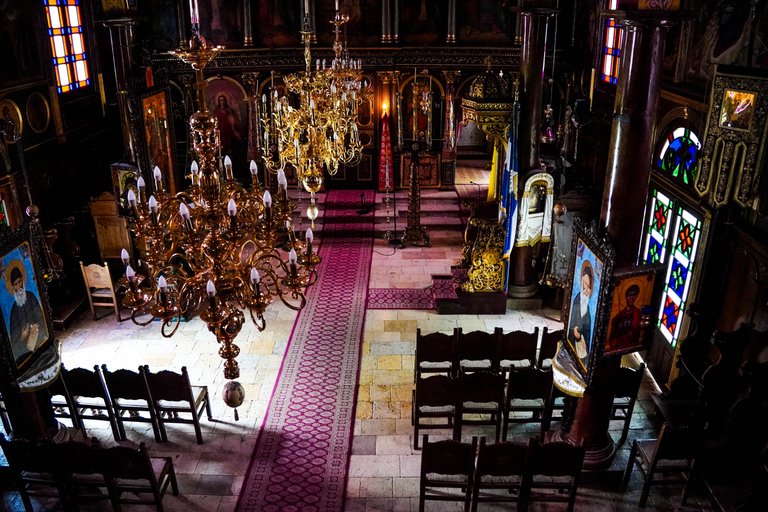
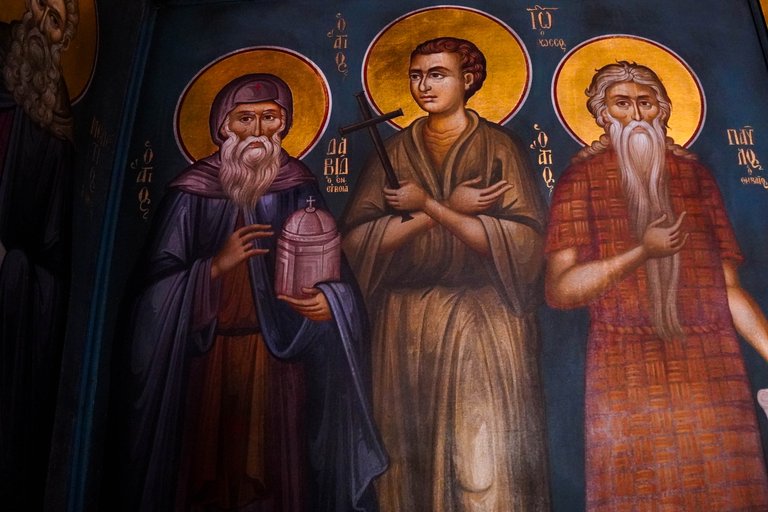
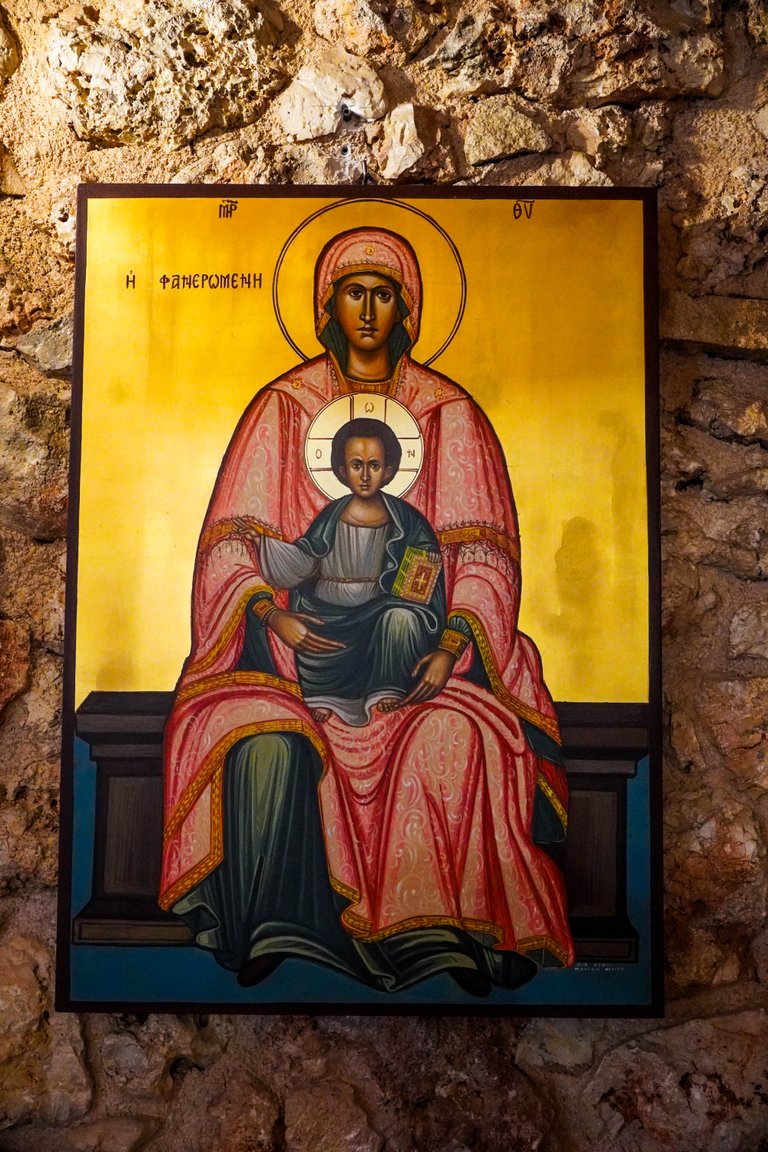 | 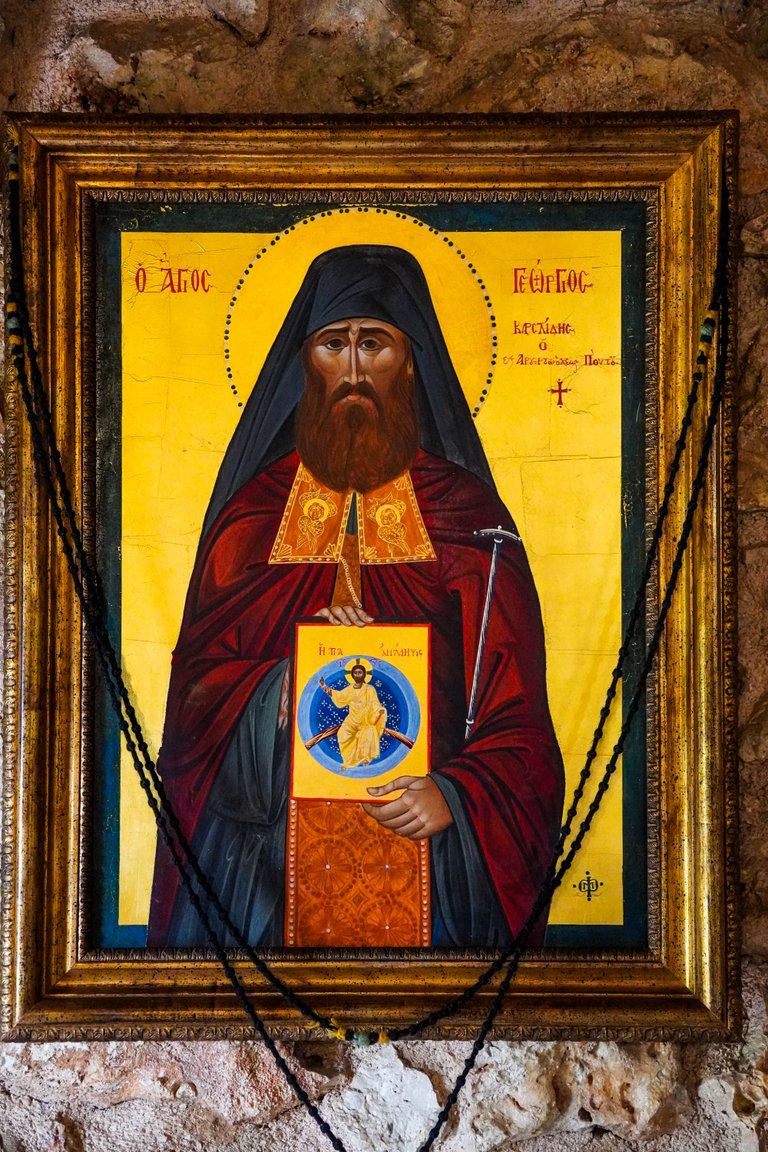 | 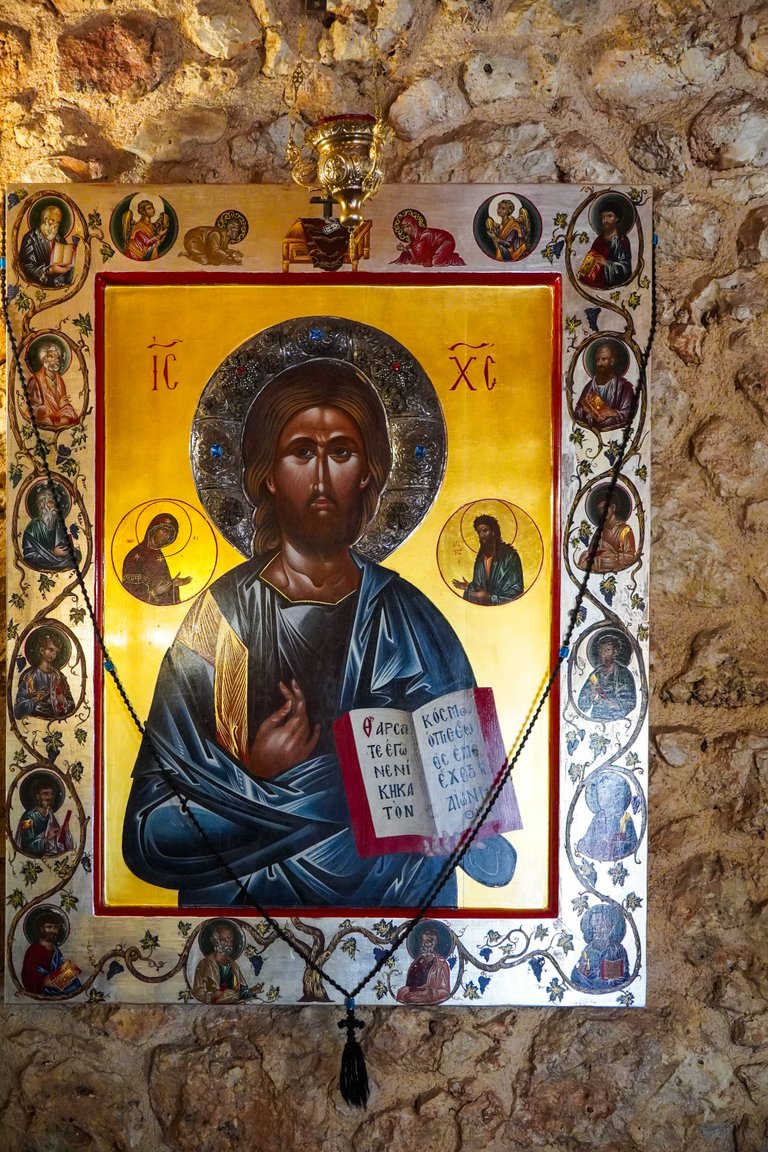 |
|---|
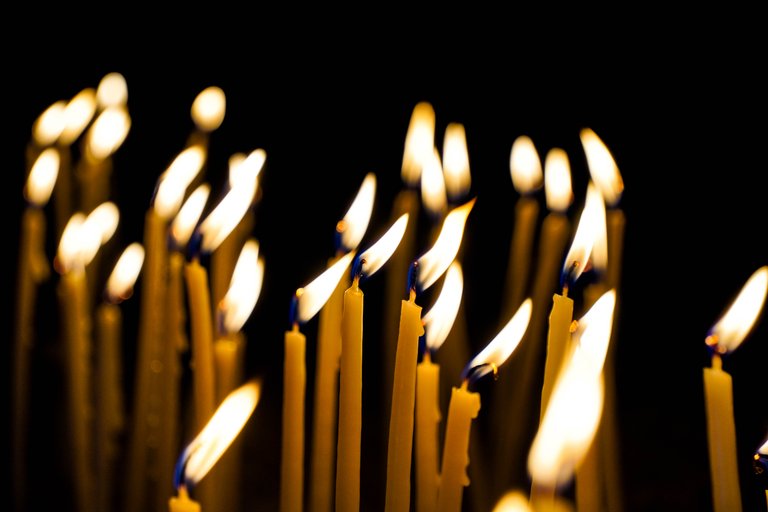
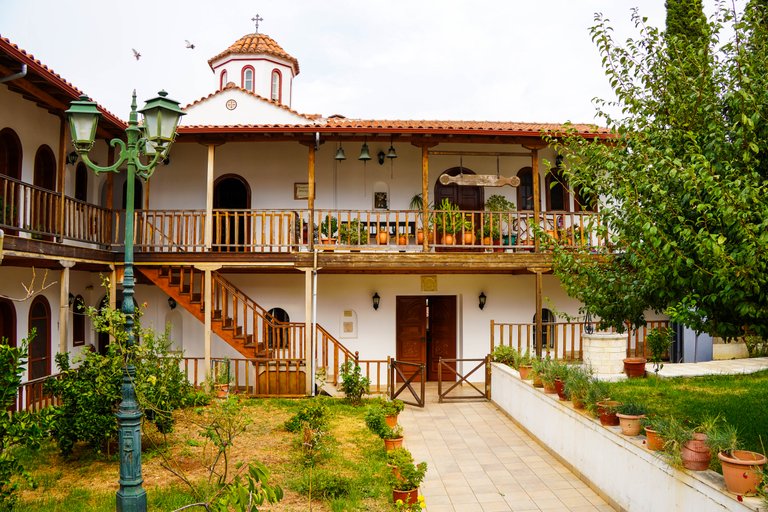
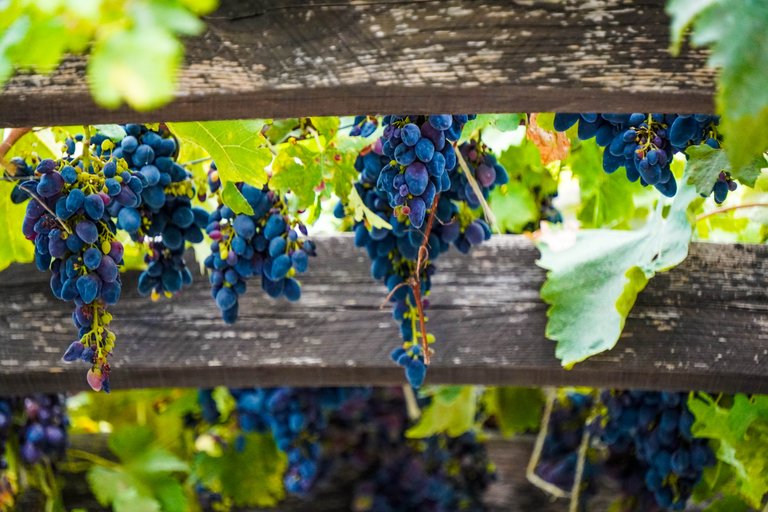
There is also a small zoo (if I can use this name).
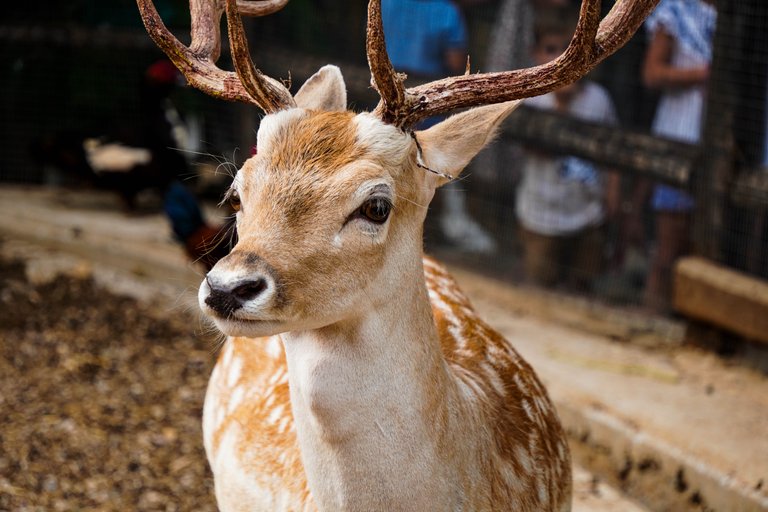
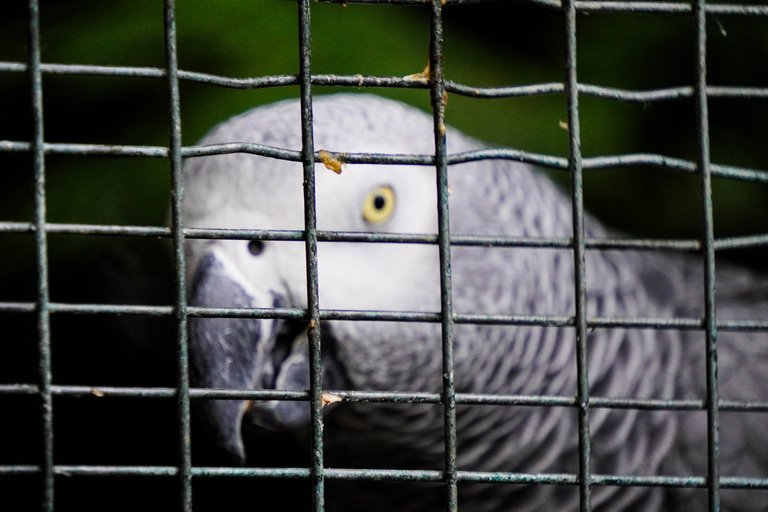
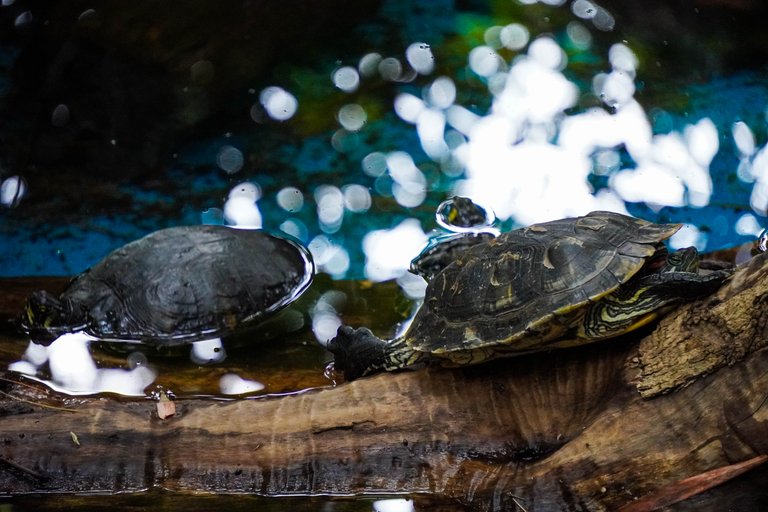
If Lefkada island has caught your attention, you can read my previous post for further information.
It's true that time flies faster when you're having a good time, and that was the case with our vacation. Before we knew it, it was time for our return home.
Good bye Greece, se you next year!
Thanks for reading,
feel free to leave a comment, I will be glad to reply to.
Best regards, @miljo76



